Kristen Lamb's Blog, page 6
June 14, 2022
Neurodivergent: Being ‘Different’ in Life & Fiction

Neurodivergent is a buzz word that’s taken off in the past decade. The term applies to a broad spectrum of people who are, for whatever reason, not normal. Those who ‘suffer’ from ADD, ADHD, OCD, dyslexia, dyscalculia, etc. are all on the list.
For those who don’t know or haven’t guessed, I’m on the autistic spectrum and also have mild dyslexia, dyscalculia, and severe ADHD. Most of my life, I knew I was different, but wasn’t exactly sure why. I was always an outsider and struggled to pick up social cues.
***Most of my grade school teachers are still the fodder of nightmares.
I don’t recall my third grade classroom, only what the hall looked like.
Teachers punished me because I did things differently than the other students. I was a whiz at math, could solve highly complex problems in my head, only to fail the test because I transpose numbers. Or, I showed my work, but solved the problem differently than the way the teacher wanted.

It seemed no matter what I did, it was wrong. I talked too much, moved too much, worked too quickly, asked too many questions, and my obsessive need for order caused more than its fair share of problems.
In Kindergarten, my teacher broke all my Crayons in half and tossed them all together in a bucket.
I have still not gotten over the hurt.
Neurodivergent vs. Neurtotypical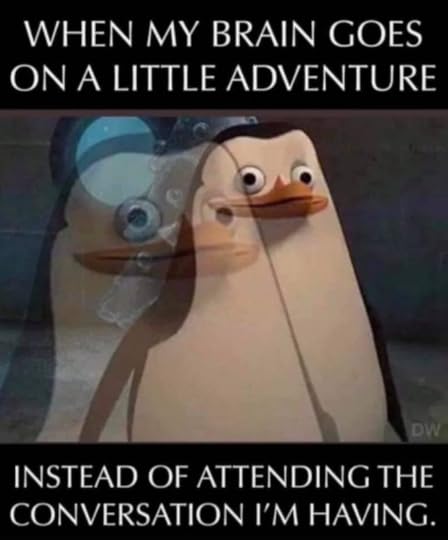
Obviously, to be considered neurodivergent there has to be a counterpart, which includes those considered neurotypical.
Neurotypical describes individuals who display typical intellectual and cognitive development. Since human beings are social animals who band together for survival, a neurotypical is generally adept at navigating complex social situations, picking up on subtle social cues, creating friendships and forming lasting bonds.
They are more aware of what could be socially off-putting. Apparently, talking about serial killers or the Black Death for an hour straight at a cocktail party is not normal.
Who knew?
Unlike neurodivergents, neurotypicals aquire verbal, language, social, and problem solving skills along a fairly standard timeline and meet generalized milestones for development. They can also function well in a regulated environment without becoming distracted or overloaded by stimuli.
And, for the record, there is overlap. Some people can be mixture of both.
Neurodivergents & the Social DisconnectGREAT at seeing patterns…in everything but a conversation *face palm*
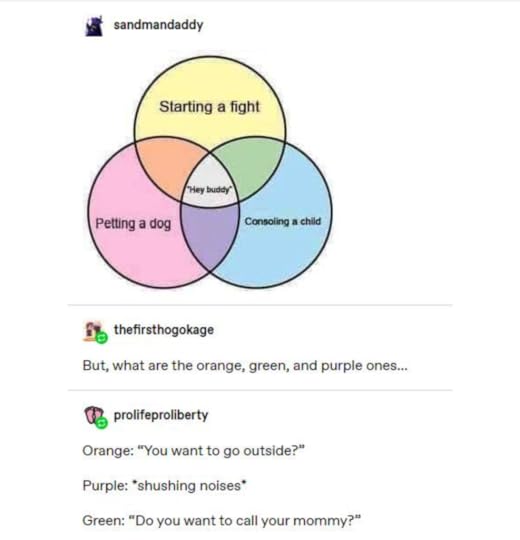
As I’ve mentioned before, I am not a clinical psychologist, I only play one on the internet. Early life, for me, was challenging at best, but often pretty miserable. Not to tell a sob story but I didn’t like playing with other kids when I could be copying the encyclopedia or playing with my chemistry set.
Sorry about the chlorine gas.
In all honesty, I didn’t UNDERSTAND other kids. I had no concept WHY they wouldn’t be interested in organic chemistry or political science.
At first, I retreated totally inwards, reading, drawing, learning clarinet. Eventually, after binging enough standup comedy, I ‘learned’ how to be funny. I could ‘mimic’ being sociable, and to an extent I still do.
Back when I was growing up, I wasn’t neurodivergent, I was weird, a freak, a nerd, or (to most adults) a problem child. The handful of teachers who ‘got me’? OMG what a blessing!
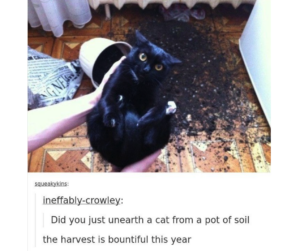 Something I totally would have said in middle school.
Something I totally would have said in middle school.I didn’t understand that one wasn’t supposed to be honest all the time. So one time, in 6th grade, when the same four boys disrupted the social studies class every single day for almost a month. And every single day the teacher made everyone put their heads on their desks even though we’d done nothing wrong.
I became more than a little annoyed.
Eventually, I asked the teacher why she couldn’t just send the four boys out of the room. Her job was to teach us about the Roman Empire, not read romance novels.
Yep, Mom got called to school over that one.
Overstimulation
Those of us who are neurodivergent are frequently viewed as ‘problematic.’ For instance, being on the autistic spectrum, I cannot tolerate certain textures in food or fabric. I am VERY picky about the clothes and jewelry I wear. Turtlenecks and chunky jewelry either give me anxiety or a headache.
I’ve recently struggled with finding a church to attend. No shade on the new style of churches. I know many people love the praise music and the show. But for me?
Dark rooms packed with people combined with booming music and flashing lights is a nightmare. Yet, when I say something about the loud noise and bright lights it falls on deaf ears because everyone else enjoys it.
This is why I struggled in school. The ‘noise’ of everything was simply too much, which was why I’d tap my foot or pen or move around…and eventually be planted in the hall.
Even now, as I am writing this, I’m wearing noise-canceling headphones.
When I worked in Corporate America, my admin and I nearly came to blows over the lights in MY office. I worked on a laptop and the natural light was fine. Florescent lights are too bright and flutter and give me headaches.
Invariably, the admin would lean in my office while I was working and turn on my overhead lights.
ACK!
Stimming & Neurodivergent
Stimming is common for everyone, but might be more pronounced with those who are neurodivergent. Biting nails, twirling hair, tapping a pencil, etc. are all forms of stimming.
Stimming is a way of dispersing extra energy that builds up as anxiety (obviously that anxiety will be more acute in the neurodivergent). One of the reasons experts believe that autism went underdiagnosed in females is that our stimming behaviors and coping mechanisms are far more socially acceptable thus go unnoticed.
Coloring for hours, rearranging dolls all day, collecting thousands of stickers or unicorns, writing stories, practicing a dance move over and over are simply ‘girl behaviors,’ thus fly under the radar.

I was in ballet for almost ten years. My mom deserves an award for letting me dance through the house all day every day for HOURS. To this day the only reason I think she doesn’t hate me for playing Tchaikvosky 600,000 times was because she’s also neurodivergent.
As an adult, I clean and listen to books and podcasts. I find it very difficult to sit and just read. When I used to attend church, I worked church security because I could walk around and look for any potential problems while also listening to the sermon.
With ADHD, I have to be doing multiple activities to pay attention. One that is a ‘no-brainer’ (cleaning, crochet, gardening) and the other that requires focus (listening to a lecture, a sermon, a book, talking on the phone).
I also live my life by lists, times and routines. Interfere with any of these and you’ll have me climbing a wall. Yes, I can be flexible…if I can plan it ahead of time.
Neurodivergent: Disabled or Differently Abled?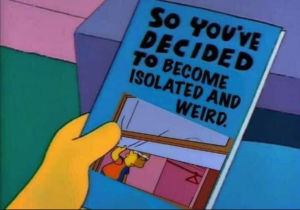
***Note: I KNOW and very much appreciate there are severe and even debilitating forms of autism, OCD, etc. but that isn’t what I am talking about today.
Thus, for the record, I am speaking for me as a neurodivergent person in a normie world. I get REALLY irritated when some suggest I have a disability. I believe I simply have a different operating system. Sort of like being a Mac when 93% of the world is Windows.
If being neurodivergent is a disability, then being left-handed should be as well, since all lefties know what it is like trying to function in a world where everything from notebooks and desks to cars and combines are designed for right-handed people. Lefties even have higher rates of accidents and, consequently, lower life-expectancies.
Did y’all know that 25% of CEOs and as much as 35% of entrepreneurs are actually dyslexic? Because they struggle with reading, they are more apt to commit information to memory, are better at delegating, and are excellent at persevering.
My son (A.K.A. Spawn) is neurodivergent and, at age 12, he studies three languages (German, Spanish, Russian) every day ‘for fun.’ He knows so much about every war from ancient Greece to Desert Storm, he’s like a walking Wikipedia.
When other kids his age are watching cartoons, he’s studying forensic accounting to understand how organized crime launders/hides money.
His favorite topic of ALL…*hangs head* vexillology. My son IS Sheldon.
And this trying to teach Spawn how to act more naturally in a video..Neurodivergent in FictionWhether we realize it or not, neurodivergent people are REALLY common in fiction, as noted above. Virtually every character on the wildly successful series The Big Bang Theory is neurodivergent, albeit in different ways and to different degrees.
Obviously neurodivergent characters will pop up more commonly in some genres than others, but characters who see and process the world differently are valuable in life AND in story.
Some favorite examples.Thriller: The Accountant is about a severely autistic man who’s channeled his unique skillsets to become the ‘money guy’ for organized crime around the globe.
Science Fiction: Stranger Things is packed full of characters who are the nerds, freaks and rejects…who are just the type of people necessary to save the world.
Drama: As Good as It Gets Melvin Udall is a famous novelist who is a raging homophobe, misogynist, and misanthrope who suffers from crippling OCD. He ends up the very unlikely hero when his homosexual neighbor is the victim of a hate crime.
Crime Procedural: With Monk, one police department’s debilitating disorder is private detective’s superpower. Abby, genius forensic scientist and pathologist on NCIS, is at the minimum VERY ADHD. Dr. Laura Isles in Rizolli & Isles, is likely on the autistic spectrum though not to the degree as forensic anthropologist Dr. Temperence Brennan in Bones.
Nerds, Freaks, March to Their Own Kazoo
Our culture has used neurodivergent characters as tropes since before anyone knew what it was. We are those who are different, outsiders, freaks. Most of my growing up years were tough because being a nerd was a fate worse than death according to pop culture.
In a way, The Big Bang Theory was a mixed blessing for me. I read Dune, LOTR, played Dungeons & Dragons, was in debate, the chess club, a mathlete and collected all things Star Trek back when I got beat up for loving stuff…
…that’s now cool *rolling eyes*
No one wanted to talk to me unless they needed to copy my homework or wanted help on a paper. I remember longing to be normal, to fit in, to be like everyone else. Now? I fly my freak flag high. When it comes to my son, I tell him…
Honey, ‘normal’ is a setting on the dryer.
MOMISM
And, when we look to all the best movies, who are the heroes we love? Goonies, Ghostbusters, Back to the Future, Weird Science, and like every super hero movie EVER?
Neurodivergent People Have ProblemsJust by the nature of our brains and sensory systems working differently, we DO have problems. Personally, I can’t be in (as in part of) really large crowds, around loud noises and I need time to be quiet. I miss social cues, can hijack conversations, talk too loudly and take things WAY too literally.
When I was a kid, there was an antacid commercial that practically gave me apoplexy.
Ad: How do you spell relief? R-O-L-A-I-D-S
4-Year-Old Me: *screaming at television* No, you dummies! It’s R-E-L-I-E-F!
Yeah, still working on nuance.
Sometimes the problems simply stem from, as I mentioned earlier, having a Mac OS in a Windows OS world. But, other neurodivergent people have struggles all along the spectrum of severity. Some of us do a fairly decent job of ‘fitting in’ whereas others probably never will, and that is okay too.
While fitting in can be overrated, I do admit there are times I wish I were normal… even though I have ZERO idea what that even would feel like.
Neurodivergent and Conflict
The beating heart of all fiction is conflict. Without conflict, we are left with ‘stuff happening.’ Since every scene requires conflict, more often than not, conflict will come from allies.
Think about Rizzoli and Isles. They’ll have a scene where clearly the victim has been shot but when Detective Rizzoli says the victim died by gunshot, Dr. Laura Isles chastises her. They know nothing until the body is on the table. She refuses to even say there is blood, only a ‘reddish substance.’ This is maddening for Rizzoli.
Abby from NCIS is like trying to get a fruit bat hopped up on cocaine and Pixi Stix to focus on one topic.
Dr. Sheldon Cooper has zero social skills and no sense that anyone has needs other than him. His girlfriend is Dr. Amy Farrah Fowler, a Harvard graduate and a neurobiologist.
She is also, obviously neurodivergent not only because of her field and interests, but it would take a neurodivergent person to be attracted to someone like Sheldon and have the patience and the grace to try to have a romantic relationship.
My favorite? When Amy builds a Tardis around the door to lure Sheldon into the bedroom (for intimacy) but he just keeps running in and out of the bedroom trying to escape Daleks and searching for his sonic screwdriver.
The whole clip is funny but Sheldon and Amy are toward the end.Normal isn’t Always What is NeededNeurodivergent characters can obviously be stars of the story, but they can also make fabulous allies. In Buffy the Vampire Slayer, Buffy is only different because she’s chosen and has powers to hunt and kill creatures the Hellmouth is spawning underneath Sunnydale.
While Buffy is a neurotypical who excels in the social realm (cheerleader) and is popular, she can’t fight evil without her less ‘normal’ allies like Giles, Xander and Willow.
This week I’m teaching a class on how to build characters that are strong enough to endure a series (Use New15 for $15 off). Neurodivergent characters are a great addition. We’ve always seen them, just maybe thought of them as the nerd, the brain, the geek, the computer whiz, the conspiracy theorist, the outcast, etc.
Neurodivergent characters might notice patterns the ‘normal world’ misses. They solve problems in unique ways or have skillsets that ‘popular’ kids wouldn’t have. Think of Dustin in Stranger Things who somehow always has a screwdriver, flashlights, batteries, and compasses. Dustin is the brains and Steve is the brawn.
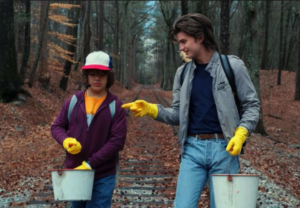
Also think how much FUN it is to see a neurotypical and a neurodivergent team up. One of my favorite character threads in Stranger Things is how super popular jock Steve Harrington becomes best friends with shameless mega-nerd Dustin Henderson.
Put these two together and yes, there is conflict. But since each has skills the other doesn’t possess but needs they make a great team and, eventually learn from each other and grow as people.
***For me, Eleven—while interesting and necessary—comparably isn’t nearly as interesting as other characters in the series.
In the end…As neuroscience is understanding more and more about how the human brain works, we are realizing that people who were once labeled as freaks, weirdos, nerds, lazy, difficult, etc. just are different. And there are a LOT of us. More by the day since the digital revolution is really a boon for us weirdos.
We’ll talk more about different types of characters in the future, but today hopefully shines a light on a character that you probably see every day (many of you in the mirror) and how they can really make wonderful additions to your fiction.
What Are Your Thoughts?Do any of you guys struggle with being neurodivergent? I have a personal theory that many writers are neurodivergent and why we write people so well is because we spend so much time studying them. What are your thoughts on that?
Did you ever appreciate just how many neurodivergent characters there are in fiction, and how they can make the neurotypical characters shine even brighter?
When I mentioned the teacher breaking all my Crayons, did anyone have a VISCERAL reaction? What are some of the ‘things’ that bother you but don’t seem to affect regular people? Do you ever wish you were normal?
For the ‘normal’ people out there reading this blog (all five of you), do your weird friends make a little more sense?
I LOVE HEARING FROM YOU!I will pick a winner once a month and it will be a critique of the first 20 pages of your novel, or your query letter, or your synopsis (5 pages or less).
We have been doing a lot of traveling because my FIL has serious health issues so I will announce May���s winner next post. I know I promised that last time, but we had to go to Arkansas AGAIN. Apologies.
CLASSES!***All classes come with a FREE recording
COMING UP!The Art of Character: Writing Characters for a SERIESThursday, June 16th 7:00-10:00 P.M. NYC Time
For more information, SIGN UP HERE. Use New15 for $15 off
Practice Your Pitch: Master the Log-LineThursday, June 23rd, 7:00-9:00 P.M. NYC Time. This is a TWO-HOUR INTERACTIVE WORKSHOP!
For more information, SIGN UP HERE.
Blogging for AuthorsThursday, July 14th, 7:00-10:00 P.M. NYC Time. 2022 SIGN UP HERE and Use New25 for $25 off
The post Neurodivergent: Being ‘Different’ in Life & Fiction appeared first on Kristen Lamb.
June 8, 2022
On Writing: Why Mastery Should Matter to Authors

Mastery is a concept that many believe is subjective, especially when it comes to writing (novels in particular). There’s an insidious belief that what constitutes good or bad is a matter of popular opinion. Quality isn’t something we can measure.
This belief—that mastery is a matter of taste—has been around as long as the publishing business. Probably longer. If this wasn’t so, then vanity presses would never have made a single cent.
Yet, vanity presses arose to meet the needs of those who believed that the gatekeepers had gotten it all wrong.
Their book was ready for popular consumption, ripe for the public to eagerly hand over disposable income for the privilege of using up limited free time to consume said book.
Sometimes (albeit rarely) the author was right.
Yet, before the digital age, an author had to seriously count the cost of publishing too soon, even with a vanity press.
Literally.
If one was going to hand over thousands of dollars to hold one’s book in hand? Then the author knew the gamble could either pay off big (The Firm), or that they’d end up with a storage unit filled with mouldering novels.
Mastery-Minded Culture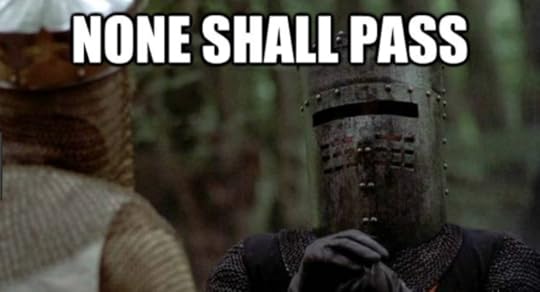 Legacy publishing.
Legacy publishing.When I started writing seriously, the author culture was vastly different. Most writers aspired to mastery. It was a time when artists outnumbered entrepreneurs.
Granted, after a few brutal critique sessions, we pretty much all figured out we’d never craft the ‘perfect novel,’ but that didn’t mean we wouldn’t keep trying to get as close as possible.
Storytelling mastery included learning the basics. We had our worn copies of Strunk & White dog-eared, underlined, and held together with tape. There was a general sense we had to earn the title of ‘author,’ and we didn’t take kindly to shortcuts.
***This was why self-publishing took years to be accepted as a legitimate form of publishing.
Many of us wanted to become authors because we were, first and foremost, avid readers.
We loved books and stories. The idea of honing the same skill levels, attaining the same sort of mastery as our author heroes propelled us forward draft after draft, rejection after rejection.
Times Change Even in Writing
In my early years, tapping out and deciding to use a vanity press or self-publishing was akin to literary blasphemy.
There was also an atavistic response to any kind of self-promotion. It smacked too much of self-publishing bottom-feeder egomania.
This overriding negative attitude was one of the major obstacles I faced early in my career. Trying to convince authors that—one day soon—they’d need an on-line platform to survive was akin to walking around L.A. wearing tin foil shouting the world was going to end (and expecting to be taken seriously).
In my early years as a social media/branding expert, authors believed the publishers would do all that unseemly marketing and promotion stuff. Their only job was to write excellent books.
Then, over time, and due to some seriously bad business decisions in traditional publishing (namely the multinational media conglomerates who called the shots), self-publishing exploded in popularity.
The Big Six betrayed their loyal mid-list authors, cast them into the dust. Amazon picked them up then weaponized them. Legacy publishing inadvertently legitimized what had once been anathema.
Within a decade, the writing tables turned.Authors in 2009 considered landing an agent the first step to success. After the agent, then the publishing deal with a ‘real’ publisher. Social media was for hacks.
Today, in 2022, I run across more ‘authors’ who aspire for marketing mastery over storytelling mastery. They can’t figure out why they’re not selling any books even though they have a fifteen-book series.
Is it the promotion? S.E.O.? Maybe they need a bigger newsletter or a spot on BookBub?
Maybe. Yet, from what I’ve seen, the major problem—more often than not—is the product not the promotion.
Content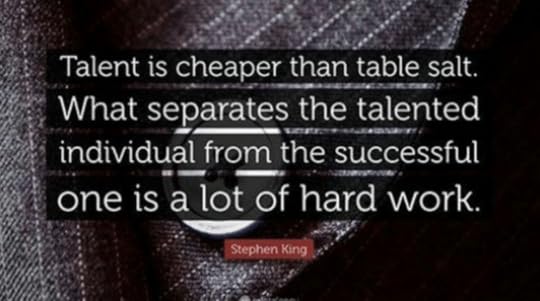
I firmly believe that true artists are always learning. We need to maintain a degree of humility in our craft or we’ll stagnate. This is why I read about 1-3 books a week in all genres. Additionally, I read and reread my favorite writing and craft books because I don’t know everything and can never know everything…which is why it is good to have reminders.
Like many other authors, Stephen King’s On Writing still has plenty of gems even though the industry looks nothing like the publishing world of King’s emergent years.
This line, in particular, still gets me every time.
If you want to be a writer, you must do two things above all others—read a lot and write a lot.
Stephen King, “On Writing”
This might seem like a ‘no duh’ statement, but I cannot count how many times I’ve encountered people who say they want to be a writer but they simply, “don’t have any time to read.”
Most of the samples I see in conferences or when running my Write Stuff Special (which is going for the next couple days)? I can instantly spot the writers who read very little if at all.
They don’t have time.
Here, King and I are in total agreement. Anyone who doesn’t have the time to read doesn’t have the time—or the tools—to be a writer (especially a good writer).
Craft classes and grammar lessons aside, reading helps fill our toolbox. We are artisans who are crafting people, places, worlds, and concepts using ONLY various combinations of twenty-six letters.
Would you trust someone to build your house who only owned (and knew how to use) a hammer and saw? Or a doctor who only knew how to wield a scalpel, but skipped learning how to suture?
Yet, how many writers are publishing books and they don’t even possess the basic fundamentals of our craft? And are more concerned with a new marketing plan than they are about why people don’t WANT to read their work, let alone PAY to read it?
Is Fiction COMPLETELY Subjective?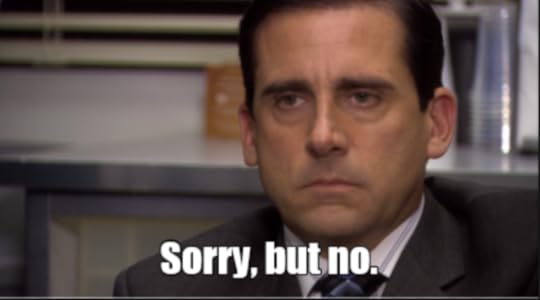
To a degree, yes. But, really? No. Not as much as some might claim.
As I mentioned earlier, it’s impossible to write the ‘perfect’ book, to craft the novel ‘everyone’ will love. This, however, is no excuse to dismiss the true artist’s inherent obligation to pursue mastery.
Did Picasso break all the rules? Yes, but he apprenticed for years, studied the masters, learned the rules and THEN broke them. Like a master mason who’s so familiar with the composition of stone, the feel of its striations, that he knows where to put the chisel and where to steer clear.
Yes, I’ve heard how there are a lot of ‘bad’ books/authors who sell a ton of copies and have a gazillion fans. Yet, I imagine one could look at any one of their books and see the writer at least tells a coherent STORY.
Mastery Begins with Basics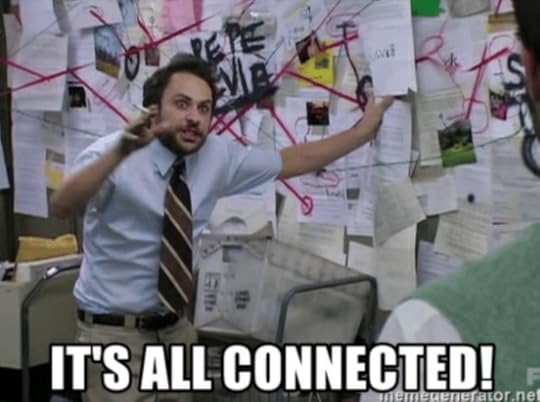
Grammar, structure, vocabulary, punctuation, etc. is for the READER. When we don’t know what P.O.V. is, we’re strapping readers onto Hell’s Tilt-A-Whirl, then have the nerve to be angry when they stumble away green around the gills.
If we don’t punctuate correctly, readers become easily lost. Similarly, grammar is akin to literary road signs that help the reader know where they are and what’s happening.
No signs or confusing signs don’t make for a pleasant drive any more than a pleasant read.
When we botch the basics, readers get a headache trying to untangle what’s happening where and why and to whom. Reading should be a pleasant experience, an adventure the reader never wants to leave.
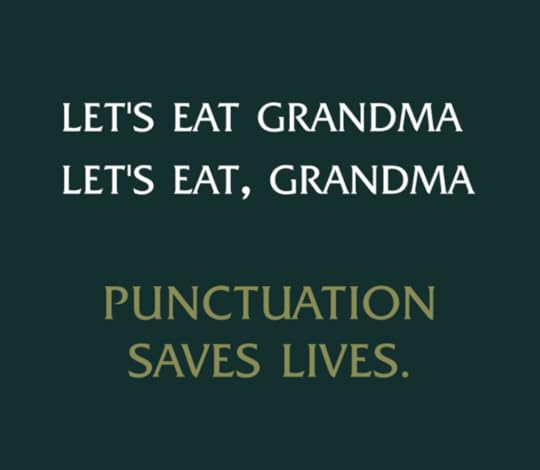
It is the height of hubris to blame readers if we’ve failed to do all that’s in our power to serve them an enjoyable experience. Stories aren’t simply for our own entertainment, unless writing is a hobby and we have no intention of selling that work.
Mastery takes time, study, practice, commitment, failure, more failure, and discipline. Sad to say we have devolved to a point where the slush pile has been dumped in the readers’ laps.
If we think it was tough to get people to read twenty years ago, what about now when there are a million plus books self-published every year (and most unedited)?
Self-Publishing & Mastery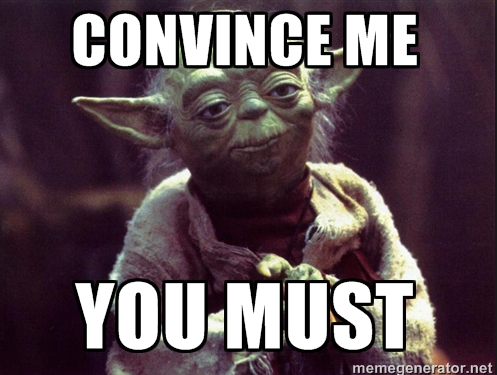
If we take a good look at the runaway successes that have emerged out of self-publishing, we’ll see that most of the BIG ones are pretty incredible books. Read Hugh Howey’s Wool, or Andy Weir’s The Martian, and Wm. Paul Young’s The Shack.
***Yes, there are more contemporary examples I could give, but these stand apart for me because they pulled ahead into the ‘legendary’ spots back when Big Publishing was still king.
Though The Martian’s hard-science-as-story might not appeal to everyone, it’s tough to argue it wasn’t well-written. Andy Weir simply told a story differently, to a group that NY publishers at the time didn’t believe existed…hard core geeks/nerds.
Weir, and others who’ve successfully self-published, have collected a fanbase because they tell stories other people want to read and can read.
Writing, like any art, has a learning curve. Sometimes, I believe this is what flubs so many of us up. Our culture believes that, because we possess command of our native tongue that OBVIOUSLY our first attempt at a novel should make millions. RIGHT?
NO!!!
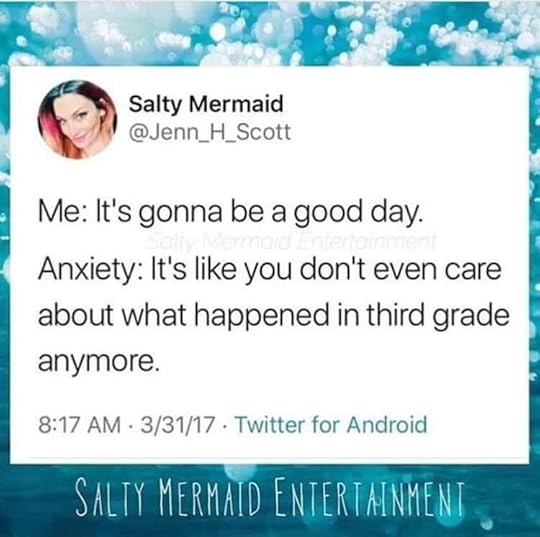
Yet, strangely the same people who believe the first draft of our first novel should be made into an HBO series would never expect a child who picks up a violin for the first time to be ready for Carnegie Hall by the end of the year.
Singers and dancers endure years of training, coaching and have tens of thousands of hours of practice before we’re likely to know they exist.
Mastery in sports, medicine, law, and yes even writing takes dedication and sacrifice. We need training, guidance, practice, mentors, failure, success, and yes…talent and a little (or a lot) of luck.
Mastery Resources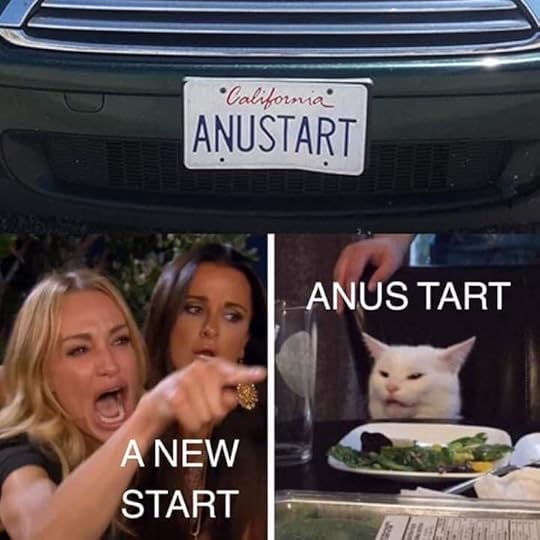 Critics are brutal.
Critics are brutal.First and foremost, if you write fiction then READ fiction. It will help you understand your genre. Genre is for READERS as much as it is for writers. When we know our genre, we know who our potential readers are. We make it easy for them to FIND us. It demystifies structure.
For instance, if you’re selling me (the reader) a mystery, then a friggin’ CRIME better happen somewhere in the beginning, and I’m not talking about a crime against the written word.
Read a lot, in your genre and out. Absorb the good and the bad. Learn the literary terrain and build your skills using observation. There are super successful authors who claim they never plot.
Yet, I will counter with this.
They have probably read SO many books that structure is hardwired into their brains. These authors gained mastery ‘by ear,’ if you will.
Some people learn piano with an instructor, others pick it up by listening and playing around on a keyboard long enough.
Both ways are hard work.
All serious authors should read (much like all serious musicians should probably listen to music). Yet, there are other tools at our disposal and here’s a list of my favorite in no particular order:
Mastery Manuals The Writer’s Journey by Christopher Vogler Save the Cat by Blake Snyder Story Engineering by Larry Brooks The Elements of Style by Willian Strunk Jr. and E.B. White Eats, Shoots & Leaves: The Zero Tolerance to Punctuation by Lynne Truss Scene & Structure by Jack BickhamHooked: Write Fiction that Grabs Readers at Page One & Never Lets Them Go by Les Edgerton (one of MY personal FAVES) Plot & Structure by James Scott Bell On Writing Stephen King Danse Macabre Stephen KingBrilliant Blogs (Other than Mine )Jane Friedman’s BlogTroy Lambert’s BlogWriter UnboxedWriters Helping WritersJanice Hardy’s Blog & Fiction UniversityDIY MFANathan Bransford’s BlogMastery Resources/Tools
The Emotion Thesaurus
(and ALL THE OTHER THESAURI as well–> BUY THEM NOW!) by Angela Ackerman & Becca PuglisiOne Stop for WritersBad Lamb Academy (shameless self-promo here & classes listed below)
)Jane Friedman’s BlogTroy Lambert’s BlogWriter UnboxedWriters Helping WritersJanice Hardy’s Blog & Fiction UniversityDIY MFANathan Bransford’s BlogMastery Resources/Tools
The Emotion Thesaurus
(and ALL THE OTHER THESAURI as well–> BUY THEM NOW!) by Angela Ackerman & Becca PuglisiOne Stop for WritersBad Lamb Academy (shameless self-promo here & classes listed below)I’ve probably left out one or twenty other items I’d love to add to this list, but there will be more blogs, and this is enough to give any author interested in pursuing mastery a darn good start.
I read and reread these books because I’m always learning and growing. I’m far from the perfect writer, but every day I’m gaining on her (even if she IS a unicorn). I write an average of 2,000 to 4,000 words a day, depending on what I’m working on.
Additionally, I average 3-4 hours of reading a day. I do this mainly using Audible because, according to the laundry piles, I think I have people living in my house I don’t know about.
And I already can hear the howls of complaint.
I just can’t listen to books. They make me fall asleep. My mind wanders.
Mine did, too. I had to TRAIN myself to listen to books. The excellent ones, I buy in paper (or ebook) and read again the old-fashioned way. But audio books are portable. I can listen when waiting in a line, stuck in traffic, while doing dishes, and when working out.
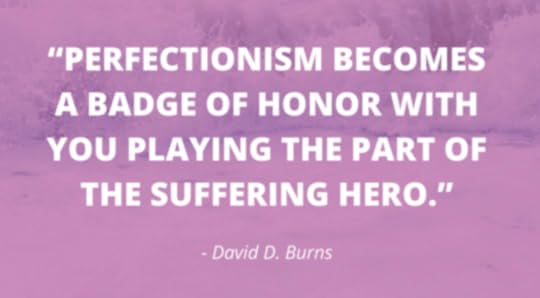
Perfect is the enemy of the good and I’d rather y’all ‘imperfectly’ listen to audiobooks than not read any books. When we show up to the blank page with no tools, no reservoirs bursting with vocabulary and imagery, we risk looking ill-prepared or simply ignorant.
I’ve been both. It sucks to invest years into a ‘novel’ that is an unsalvageable mess. I keep my first ‘novel’ in the garage because it chews on the furniture and pees on the rugs.
Remember, we all start somewhere. Give yourselves permission to be NEW.
What Are Your Thoughts?I love hearing from you!
And to prove it and show my love, for the month of JUNE, everyone who leaves a comment I will put your name in a hat. If you comment and link back to my blog on your blog, you get your name in the hat twice. What do you win? The unvarnished truth from yours truly.
I will pick a winner once a month and it will be a critique of the first 20 pages of your novel, or your query letter, or your synopsis (5 pages or less).
We have been doing a lot of traveling because my FIL has serious health issues so I will announce May’s winner next post.
CLASSES!***All classes come with a FREE recording
COMING UP!The Art of Character: Writing Characters for a SERIESThursday, June 16th 7:00-10:00 P.M. NYC Time
For more information, SIGN UP HERE.
Practice Your Pitch: Master the Log-LineThursday, June 23rd, 7:00-9:00 P.M. NYC Time. This is a TWO-HOUR INTERACTIVE WORKSHOP!
For more information, SIGN UP HERE.
The Write Stuff Special: 20 Pages of DEEP Edit ONE LOW PRICE HERE. Only 10 slots available and open until June 9th.
The post On Writing: Why Mastery Should Matter to Authors appeared first on Kristen Lamb.
May 31, 2022
Write FAST & Furious! Outrunning “Spock Brain”
 Original Image courtesy of David HT Flikr Creative Commons…
Original Image courtesy of David HT Flikr Creative Commons…Fast drafting is a technique that I have used successfully on quite a few books. What is fast drafting? Fast drafting is when we sit down and write a book within a given amount of time. It can be as short as two weeks, but I don’t recommend longer than six.
WHY, KRISTEN? WHY????
Many new authors slog through that first book, editing every word to perfection, revising, reworking, redoing…and they never finish. So they start another book and edit and nitpick and…don’t finish.
Wash, rinse, repeat…mildew.
When I used to be a part of critique groups, it was not at all uncommon to find writers who’d been working on the same book two, five, eight and even��ten��years.��
I have been guilty myself…which is exactly WHY I fast draft.
Every time I’ve ever fast-drafted all the way to The END? I have published that book. Comes in handy when you’re also ghostwriter.
Conversely, every time I thought I was too smart and I didn’t NEED to fast-draft, I’ve stalled.
Those ‘bright ideas’ are all sitting in my Documents hanging out with the digital dust plot bunnies.

Before anyone shouts me down, let me make this clear. HOW we write books is called ‘author process.’ When we are new, likely we’ll have to experiment.
Guess what? If you’ve never finished a novel, might be at least a good idea to emulate or learn from those who have. I learned from Candace Havens because she’s written, finished and published a gazillion books.
Seriously, click that hyperlink. Candy is amazing!
Great, maybe Kathryn Stockett, the author of��The Help��took five years and 62 revisions to get her story published. Awesome for her. And yes, her book was a runaway success, but this isn’t the norm. We are also now in a totally different publishing world.
This said. I don’t care if your writing process involves writing 100 words a day while wearing a unicorn outfit. Some people do super detailed outlines. Others write by the seat of their pants and are allergic to outlines.
If it works and you are finishing books? Who cares? I don’t.
So if you’ve tried fast-drafting and it doesn’t work, then fine. You at least gave it a try OR you know how to finish. I’m not talking to y’all. You’re set.
But for others, it might just be the key y’all need to break out of perfectionism.
Perfect is the enemy of the finished.
Fast Times in Indie Publishing
For those who want to make a living writing, here is the tough talk. If we keep perfecting and going back and revising and rewriting, then guess what? We are not finishing.
Why is this important? Well, first of all, most people are not interested in buying our clever and perfect half-finished manuscript.
In the new publishing paradigm, to the prolific goes the spoils.
Me and yes I am quoting myself
Readers find a book, author or series they love and they will inhale everything. In the ‘Not So Good Old Days’ most authors were limited to publishing a book a year, maybe two. This was why, in large part, authors had a 96% failure rate (actual 2004 numbers from Book Expo America).
It is also why it took FOREVER to make excellent money as an author. One had to build up a backlist, while also being hindered by an outside editorial calendar over which authors had NO CONTROL.
Now? If you want to publish a book a month? You can do it. I don’t necessarily recommend it, but no outside force is going to limit you.
Notice I said, I don’t necessarily recommend it. If you want to fast-draft ten books, position each in a queue, then release a book a month? Awesome.
Regardless of how we write/publish, we must pick up the pace to make a living.
Does Writing Quickly Produce Inferior Work? Image courtesy of Slashfilm.com
Image courtesy of Slashfilm.comI’m a huge fan of fast drafting, if you haven’t caught that. As I already mentioned, Candace Havens teaches this technique, and it works. In fact, I think she has an upcoming class on this.
Candy is hardcore. She pushes you to write your novel in two weeks. I know right now there is great gnashing of teeth. I thought it was insane as well…until I did it. And my first novel was a product of that fast-draft session.
When we fast-draft, of course we do a little planning. What is the story about? Who are the main characters? But limit this, and I’ll explain why in a bit.
Why do we need to do some planning? Because…
The difference between fiction and reality is fiction has to make sense.
Tom Clancy
Ultimately, our story needs to make sense. There is cause and effect, things cannot happen for no reason, and everything must be set up ahead of time or the reader WILL call “Foul!”
This aside. The point of fast-drafting is to simply write. No looking back. Always forward. You can fix stuff later.
I’ve heard some writers criticize this method, believing that writing at this increased pace somehow compromises quality. Many writers are afraid that picking up speed will somehow undermine craftsmanship, yet this isn’t necessarily so.
Some Fast ExamplesTo prove my point, here are some interesting factoids about writing hard and fast, some taken from James Scott Bell’s WONDERFUL book The Art of War for Writers (pages 79-82):
William Faulkner wrote As I Lay Dying in six weeks.Ernest Hemingway wrote The Sun Also Rises in six weeks.After being mocked by a fellow writer that writing so fast created junk, John D. MacDonald wrote The Executioners in a month. Simon & Schuster published it in hardback. It was also serialized in a magazine, selected by a book club, and turned into the movie Cape Fear TWICE.Ray Bradbury wrote Fahrenheit 451 in nine days on a rented typewriter.Isaac Asimov was the author/editor of over 700 books over the course of his career.Stephen King writes 1,500 words a day every day of the year except his birthday. He’s published over fifty novels, and I don’t even know how many short stories and novellas. Let’s just say he’s written a LOT. Could he have done this writing a book every three years? Every five?NO.
Meet “Captain Kirk Brain” & “Spock Brain”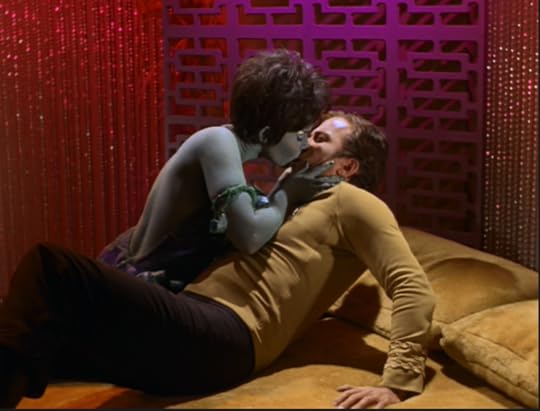 From the original Star Trek
From the original Star TrekHere’s my explanation of why writing faster than we ‘are comfortable’ can produce fiction just as good (if not better) than a work that’s been written slowly and deliberately.
And, since all roads that do not lead to LOTR, lead to Star Trek…
When we write quickly, we get into The Zone and pass The Wall. We become part of the world we’re creating. Fatigue wears out the cerebral cortex (the ‘Inner Editor’ which I will call our ‘Spock Brain’).
Fatigue diverts us to the Limbic Brain (also known as the Reptilian or Primal Brain, or for today’s purposes—‘Captain Kirk Brain’).
Captain Kirk Brain is emotional, visceral and has no problem kissing hot, green alien women or cheating the Kobayashi Maru. He out-bluffs Klingons, outruns Romulans, starts brawls and throws the rulebook out the window. He’s pure instinct, raw emotion and all action.
Live Fast, Write FastIn short, Kirk is the stuff of great stories because he doesn’t stop until he gets what he wants. No one ever got to the end of a book and said, “Wow, that book was��riveting.��The grammar was perfect.”
Captain Kirk Brain can do it’s job better—write fiction—when Spock Brain isn’t there saying, “But Captain, you’re being illogical. It clearly states in Strunk & White….”
 From Star Trek ‘Into Darkness’
From Star Trek ‘Into Darkness’The BEST line Star Trek: Into Darkness is when the villain of the story (Kahn) says to Spock, “You can’t even break rules, how can you expect to break bones?”
So, I’m going to apply this to writing.
When it comes to your fiction, are you breaking enough bones?
Ha! me again
Many writers hold back emotionally when writing. Why? They aren’t going fast and hard and so Spock takes over and he wants us to use a seatbelt and our blinkers.
He isn’t the guy you want in charge if you’re going for the GUTS and breaking bones.
Kirk is for Action & Spock is for Rules
Spock Brain is a perfectionist and wants us to take our time, make sure we follow all the rules and put the commas in the right spot. He’s seriously uncomfortable with ‘suspending disbelief’ and he tries to explain everything so others don’t get confused.
The trick is to hop on a cerebral crotch-rocket and outrun Spock. He is seriously uncomfortable with speeding and you can easily lose him in the school zones or the parking lot of Walmart.
Don’t worry, Spock will yell at us later…at the appropriate time which is during revisions.
Thing is, Kirk and Spock make the perfect team, whether on The Enterprise or in our head. They balance each other, but they are also antagonists. Kirk wants to put phasers on KILL, and Spock wants to check and see if the rules for the Oxford Comma allows this.
Write Fast and Write FrequentlyTonight, I am teaching a class on Blogging for Authors. Why do I want authors to blog, other than it is one of THE BEST ways to cultivate an audience who will love our writing and buy all our books?
The reason I encourage writers to blog is that blogging is writing.
WHO KNEW? Yes, y’all are here reading WORDS from MY HEAD! Amazing!
And the more we write, the leaner, meaner, faster and cleaner we become. We learn to finish. It helps us override our need to ‘perfect’ everything.
Blogging helps us ship and get comfortable with going FAST. No, maybe every blog isn’t the quality of a New Yorker article, but who cares? It’s a BLOG.
We aren’t looking to win the Pulitzer. We’re looking to get better riding a Cerebral Ducati and ignoring all of Spock’s protests that “This isn’t safe” and “Where is our helmet?” and “Clearly the speed limit forbids you going this fast.”
 Image via Star Trek (2009)
Image via Star Trek (2009)When we get the stories out faster, they’re more visceral. We get more practice with��more stories��since we aren’t letting Spock nit-pick for the next ten years…which he will do if Kirk doesn’t go running the other way despite Spock’s protests.
The Fast ZoneAs I mentioned in the beginning, if we want to fast-draft then I recommend a little bit of planning. For instance, I am fast-drafting a novel right now. I have written over 15,000 words in the past few days.
Before I started, though, I had to do some basic world-building. It’s a dark comedy but set in the future, so I had to work out how my world would look. Then I needed a rough idea of my main characters, and I also came up with the log-line.
What is my story about in ONE sentence?
Once I know that? Then I know the POINT of my story. How does it end? Who needs to arc and how?
Do this planning, but don’t camp here. Planning is productive procrastination. Limit how long/how much you plan.
Since I already know all of the core information ahead of time, fast-drafting becomes a lot easier.
You know what is toughest? To keep moving forward no matter what. I have already caught myself a few times wanting to go back and ‘fix.’ NO!
As an added bonus, when we fast-draft, we literally are rewiring our brains. Neurons that fire together wire together. Ever wonder how the prolific authors seem to only get faster? Practice! There is a reason Dean Koontz’s first-draft is his final draft. He never revises.
How can he do this?
He has written so many books that story structure is hard-wired into his brain. Fast drafting might not pay off the first time, the second, the third. But we are training our brains how to FINISH. We are hard-coding storytelling into our neurons.
Ultimately, over time? We only get better with practice.
In the EndPerfect is the enemy of the good and death to the finished. There is no such thing as a perfect novel. Also, guess what? No half-finished ‘perfect novel’ ever became a runaway global phenomenon BUT plenty of ‘terrible but finished’ novels have.
What Are Your Thoughts?Other than you cannot possibly fast-draft. I get it. Not your process and that is perfectly fine. Would you have ever believed that Ray Bradbury wrote Fahrenheit 451 in NINE DAYS?
Have you had good experiences with just writing? NaNoWriMo is great for this, though I recommend a little planning ahead of time.
I love hearing from you! And I like to reward those who chime in!
CONTESTWhat do you WIN? For the month of MAY, for everyone who leaves a comment, I will put your name in a hat. If you comment and link back to my blog on your blog, you get your name in the hat twice.
The Prize?The unvarnished truth from yours truly. I will pick a winner once a month and it will be a critique of the first 20 pages of your novel, or your query letter, or your synopsis (5 pages or less).
CLASSES!***All classes come with a FREE recording
TONIGHT!Spilling the TEA: Blogging for AuthorsTUESDAY, May 31st, 7:00 PM E.S.T. to 10:00 P.M. EST.
Use code New25 for $25 off Sign up HERE
The Art of Character: Writing Characters for a SERIESThursday, June 2nd 7:00-10:00 P.M. NYC Time
For more information, SIGN UP HERE.
Practice Your Pitch: Master the Log-LineThursday, June 9th, 7:00-9:00 P.M. NYC Time. This is a TWO-HOUR INTERACTIVE WORKSHOP!
For more information, SIGN UP HERE.
The post Write FAST & Furious! Outrunning “Spock Brain” appeared first on Kristen Lamb.
May 24, 2022
Boutique Books: The Fall of the Mega-Author Titans

Boutique businesses are on the rise in the digital age. What does ’boutique’ mean? Essentially, small is now big. Instead of people relying solely on a handful of major brands, the marketplace has shifted from the macro to the micro.
Yes, plenty of people still pick up a Brad Thor in the airport. Just like plenty of people go over to Home Goods, TJ Maxx or Kirklands to buy home decor. But there are probably just as many heading to Etsy (and similar sites) to buy one-of-a-kind decor from independent creators.
***Same for books.
While mega stores hold certain advantages, they also have just as many disadvantages. Namely, they have to stock enough variety to appeal to as many customers as possible.
The idea that ‘Small is the New Big’ isn’t particularly new. Seth Godin wrote a book on this in 2006, and I also mention this in my social media/branding book Rise of the Machines: Human Authors in a Digital World. Yes, that book is evergreen, meaning it still works today. The digital landscape changes daily but humans never do.
***Go read Shakespeare or look up some ex on social media.
The reason the market shifted was because, when Web 2.0 took off, it opened up the entire world to consumers. This can be good and bad. Yay for more choices! But soooo many CHOICES!
*head explodes*
The Days of the Mega Author Titans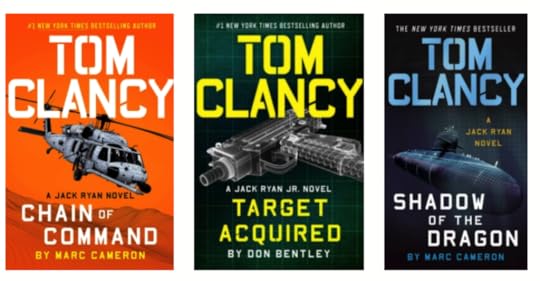
Many of us, when we started writing, all wanted to be the next INSERT NAME OF MEGA AUTHOR HERE. Now, do I think the mega-authors we currently have are going to up and vanish?
Of course not.
Readers will still buy James Patterson, Stephen King, J.D. Robb, J.K. Rowling (Robert Galbraith), and so on and so forth.
This said, I don’t believe any NEW mega-authors will replace them, simply because we’ve fundamentally shifted our buying patterns. The Big Six (NYC and global conglomerates) simply did not adjust to the changes in the digital world quickly enough to survive. Most of them have folded or changed their focus (I.e. solely non-fiction/more streaming content).
The Mega Author business model worked pre-digital age for very practical reasons. First, the public relied on a very limited number of gatekeepers to tell them what was worth their time. We relied on what we saw on shelves, on television talk shows, in the newspapers, etc.
Remember Oprah’s Book Club?
Before Amazon, novelists had a horrific failure rate, namely because—unlike non-fiction authors—it was virtually impossible to build a brand (fan following) before the book became available for sale.
How It Worked
This meant that, NY would release a new author’s book, and, if the stars happened to align just right and the book actually SOLD, then the author would get another book deal and a larger print run. Repeat process until you have a winner.
Sadly, only 1 out of 10 traditionally published authors ever published a second book. Yes, the failure rate was staggering.
Check out this post if you’re curious how traditional publishing worked.
Once a member of the ‘old guard’ of big name authors was ready to retire, NYC would ‘promote’ a mid-list best-selling author. Because traditional publishing was tethered so closely to bookstores (Borders and B&N in particular), they could somewhat artificially promote the next ‘big deal’ by giving the author a much larger print run and by increasing distribution.
Translation? Borders or Barnes & Noble would order MUCH larger shipments of the book and, in cooperation with NYC, arrange optimal placement.
The thought was, if potential readers kept seeing the same books in checkout lines, at Walmart, Sam’s, grocery stores, drug stores, that eventually they’d buy. This would prime the proverbial pump and…
VOILA! The next NYTBSA!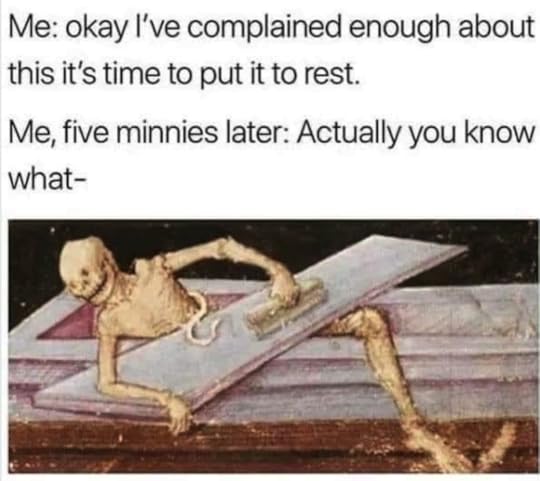
It worked very imperfectly, but before a digital marketplace, this was the best they could do.
Eventually, the reading public just assumed if it was a big name author, the book was good. Not saying their books weren’t good, but there were plenty of authors who had books just as high of quality if not better.
And, again, no shade on any of the franchise authors, because readers like them. What I am saying is Robert Ludlum (who passed March 2001) and Tom Clancy (who passed October 2013) are still hitting the best-seller lists.
Eh. Okay.
These authors’ NAMES are franchises and their books still sell in high enough volume to make the best-selling lists…even though the original authors are no longer among the living.
No young blood is coming in to take their places.
Boutique Business is Booming
Suffice to say, the mega-authors we have now are, in my POV, the last of their kind, and for very practical reasons. First, we no longer only have a handful of gatekeepers telling us what’s worth reading.
Secondly, with over a million self-published books being added every year, the sheer VOLUME of choices is enough to make our (the consumer’s) head explode.
When everything is a choice, then nothing is a choice.
Also, writers can curate content for a highly specific audience. Take any slice of society and an author can build a niche around that. Feel free to write about NYC socialites, but remember that Mississippi housewives who run a Voodoo shop to work out their middle-age angst could trend as well.
I am being silly, but not.
There will always be tribes of people who want to be represented. Drive a Harley? Keep snakes as pets? Volunteer as a docent at the art museum? Drive a Harley when not collecting snakes or volunteering at the art museum?
If you can dream it, it can be a niche.
Boutique Books
The megastore model, in general, is struggling to survive. Big box stores have ridiculous overhead and their profits are always tied to a physical product (meaning they’re also tied to the cost of petroleum and vulnerable to supply chain issues).
Refusing to downsize was one of many reasons that retailers like Barnes & Noble cut their metaphorical throats. For those who want to know more, I suggest my post, Barnes & Noble SOLD: Goliath has Fallen & What This Means for Writers.
But, one business’s problem is another’s opportunity. One thing I mention over and over in my book is that we really don’t have to cultivate an overly huge fan following to make a really great living.
Tech guru Kevin Kelly stated all a creator needed was 1000 ‘true fans’. ‘True fans’ are the super fan. They preorder books, buy everything we write, give our books as GIFTS. The super fan (and y’all know you are one) will stop strangers in a store to recommend a favorite author.
Boutique is all about the super fans!This was why I predicted over ten years ago, that the book business would go boutique. We (readers) simply cannot keep up with all the books being published. There are no traditional gatekeepers.
In the ‘old days’ an agent might have passed on a perfectly AMAZING vampire book because they already had maxxed out the number of vampire books they were willing to release.
This was GREAT because anyone with a vampire book was only competing against a small and finite number of other vampire books. The downside was that their book might have been BETTER than the books already slotted, just they came along too late. Meaning readers missed out on a lot of great books.
Now? That vampire book could possibly be competing against a 1,000 or even 10,000 other vampire books. Pluses and minuses to everything.
Boutique Author Model
Just as physical bookstores had/have limitations, digital bookstores do as well. Namely, discoverability is a nightmare. This is why building an author brand is absolutely critical.
Unlike 20 years ago, we don’t have to make everyone a fan. We don’t even, say, have to make everyone who loves romance a fan. It’s possible to cultivate a fan for your one-of-a-kind romance. Your followers might love sassy sweet romances set in New Hampshire that focus on people who quilt, or hike, or drive an Uber.
With the entire WORLD as our ‘audience’ it is now possible to drill down and become a micro-niche. I am no longer selling science-fiction, I am selling dark comedy science-fiction set in Floridian retirement communities.
This makes that 1000 fans more than doable. And, with Amazon’s improving algorithms and metadata, it’s only getting better.
Keys to Book Boutique
What are some keys to going boutique in the book biz? First, forget trying to sell everyone. Everyone is simply not doable. When envisioning your brand, what are ways you can drill down into the micro and identify YOUR unique reader?
We are going to talk A LOT about how to do this in my upcoming class Spilling the TEA: Blogging for Authors. Blogs are wonderful for not only defining our audience, but then connecting with them and cultivating long-lasting relationships that will translate into sales.
People buy from who they know, trust and LIKE, and blogs are perfect for all three.
***The reason I recommend a blog is WE OWN IT. Unless we don’t pay our web host, all the love we give our blog will keep paying dividends. Twitter could flitter, Facebook could Meta OUT, InstaGram could InstaSCRAM, but blogs remain.
Aside from social media and cultivating that audience, the next key is to write a lot of books. Series are BIG. I find a writer I enjoy and very literally read everything they’ve written or will write in the future.
Series are boutique GOLD.
We have become a culture addicted to binging. I am even back working on my own fiction (been ghost writing for the past couple years). But, to be able to produce enough fiction to keep fans happy (or as close to happy as possible) series need to be planned. Yes, even the pantsers.
To minimize revisions, I have a great class coming up this Thursday, Bring on the BINGE: How to Plot & Write a Series. Class comes with a recording, FYI.
I cannot overstate just how beneficial it is to put in some initial planning. Even understanding the different TYPES of series can go a LONG way.
I had a writer who did my “Write Stuff Special” (where I look at your first 20 pages) and she was cutting WAY TOO MUCH. I ended up doing an intervention and calling her.
***She thought she had one kind of series when actually she had something totally different. The LAST thing she needed to do was cut.
If we think of boutique book business like boutiques in general, what comes to mind? Small, curated, unique, personal, higher quality, specialized, one-of-a-kind, niche, etc. We, as authors, can do all these things with our brand and our books.
Just Make the RIGHT People Happy
Don’t get me wrong, it does bug me that I will likely never be the next INSERT MEGA AUTHOR HERE. But the crazy thing is that the authors who are doing well—like CRAZY well—are superstars among their people. Their fans buy everything they write.
And, if you look to the common denominators that make them so successful it’s really because they a) defined their niche b) built a following c) they continue to serve new books to their dedicated readers.
A couple of my favorites?
James Lovegrove combines two niches into ONE highly unique fandom. In his Cthulu Casebook series, he blends those of us who love Sherlock Holmes with those of us who also like H.P. Lovecraft. It’s Sherlock Holmes meets Elder God horror. I own the entire series. Is it a SERIOUSLY fringe combination? Sure! But Lovegrove dominates it with people like me who love all things clever, dark and weird.
Our own Maria Grace does a fantastic job with ‘gas lamp’ fantasy. Her Jane Austen’s Dragons series is wonderful!
Daniel Arenson’s Earthrise series is a super fun science fiction for those who simply want to enjoy a great adventures with memorable characters.
When we get over into romance, fantasy, science fiction, I am certain we can add many more authors to this list. Some even have earned the titles of New York Times BSA or USA Today BSA, but they achieved these titles in a non-traditional way.
All I’m saying is the old method of write a book, get an agent, pray, pay your dues, one day hopefully hit mega-author status is pretty much a thing of the past. We’ll still have our ‘TITANS’ but they’ll dominate niches first and foremost.
In the End…If an Amazon movie or Netflix series breaks these authors out into the mainstream, then AWESOME. Yes, that is possible. It does happen. It’s simply the process has almost reversed. Instead of writing a book we hope EVERYONE will enjoy (or at least everyone in that genre), we can start out more grassroots.
Once we find our fans then cultivate from there? Who knows how big it can go? But, the good news at least is that, with the boutique book approach, it is A LOT more doable to find and convert that core 1,000 people than to try and make EVERYONE love our work.
What are your thoughts about boutique?Does it make all this ‘writing for a living’ seem more doable? Is it a relief that we really only need to focus on converting 1,000 true fans instead of marketing to everyone? Can you think of some of your favorite writers who dominate their niche?
Do you think I am wrong and we will continue to have mega-authors the same as we always have? Hey, this is just my opinion so let me know if you see it differently. I believe we’ll have big name authors, just they’re going to get there VERY differently than in the past. But what do you think?
I love hearing from you! And I like to reward those who chime in!
CONTESTWhat do you WIN? For the month of MAY, for everyone who leaves a comment, I will put your name in a hat. If you comment and link back to my blog on your blog, you get your name in the hat twice.
The Prize?The unvarnished truth from yours truly. I will pick a winner once a month and it will be a critique of the first 20 pages of your novel, or your query letter, or your synopsis (5 pages or less).
CLASSES!***All classes come with a FREE recording
TOMORROW!Bring on the BINGE: How to Plot & Write a SeriesThursday, May 26, 2022 7-9:30 P.M. NYC Time
For more information, SIGN UP HERE.
Spilling the TEA: Blogging for AuthorsTUESDAY, May 31st, 7:00 PM E.S.T. to 10:00 P.M. EST.
Use code New25 for $25 off Sign up HERE
The Art of Character: Writing Characters for a SERIESThursday, June 2nd 7:00-10:00 P.M. NYC Time
For more information, SIGN UP HERE.
Practice Your Pitch: Master the Log-LineThursday, June 9th, 7:00-9:00 P.M. NYC Time. This is a TWO-HOUR INTERACTIVE WORKSHOP!
For more information, SIGN UP HERE.
The post Boutique Books: The Fall of the Mega-Author Titans appeared first on Kristen Lamb.
May 18, 2022
Weakness: Blood in the Water & Narcissist Sharks

Weakness is inherent to the human condition. No one is always strong all the time and in every way. Last post, we dove into the deep dark waters of the narcissist. Namely, we explored one of their more common tools for manipulation—gaslighting.
Obviously, I recommend going back to check out the post. But, for brevity’s sake, I’ll restate the definition here.
[Gaslighting] is a form of intimidation or psychological abuse, where false information is presented to the victim, making them doubt their own memory, perception and quite often, their sanity.
Urban Dictionary
When reading how insidious gaslighting can be, it’s easy to think that this is something rare that only happens to ‘other people.’ Sadly, this is far from the case. This holds true for narcissists all along the spectrum from mild to terrifying. Why? Because we all have human weakness.
And remember, ‘weakness’ is a highly malleable term that can range from simply a kind and trusting nature to a deep psychological wound. Each weakness is like a hole where an abuser/predator can get a stronger hold to climb even deeper into the psyche of their target.
‘Weakness’ is Necessary
Weakness is a necessary part of being a healthy human. Yes, y’all read that correctly. All of us have strengths and weaknesses, and these are how we forge relationships.
If you think about your friends, partners, spouses, etc. often you’ll have just enough in common to spark, but where your relationship is particularly strong is along areas of weakness.
It is impossible to make a ‘connection’ if both parts are the same. Think of a plug. The cord needs prongs (male) and the wall needs the outlet (female). It is in their ‘opposite-ness’ that they come together and light up a room.
Is either the prong or the outlet ‘weak’? No. But they aren’t terribly useful on their own or without their counterpart.
My closest friends have a lot on common with me, but they are also diametrical opposites. While I might be a clean freak, organization is NOT my thing. Grace and Cait use Excel for everything. They have folders for folders and know precisely where everything is.
Me? I have one GIANT folder no one is to touch because, while I can’t put a finger on whatever in the moment, I KNOW it is in there SOMEWHERE. Cait and Grace keep me on track.
But, both Cait and Grace rely on me to help in areas they can ‘do,’ but where I am simply far better, like writing copy or determining price point variables. I’m oddly a writer who’s also excellent at math.
We NEED Each Other
I am very much a Tigger in my personality…which is why I married Eeyore. Granted, just like Tigger, I can be a LOT of fun…but I can also bounce through your life oblivious to all the things I might break in the interim (then feel SUPER SAD about it). I have three speeds—Fast, Warp Speed, and LUDICROUS. Meaning I think fast, talk fast, work fast, walk fast.
Admittedly, I am bad horrible at self-awareness and run until I burn out.
Hubby? He’s so slow and deliberate I want to stab him very meticulous in everything he does. While I am BIG PICTURE, Hubby is detail-oriented to the point it can be maddening (for me). But you know what? I NEED THAT! He actually *gasps* reads instructions! #Witchcraft
This said, someone with a gentle, sweet, caring nature might begin psychologically healthy. But, if they come in contact with the right kind of predator, that predator can/will use what is GOOD about that person to exploit them.
Common Weakness
We can be the most emotionally healthy people on the planet, but no one is immune from LIFE. A death, an accident, a job loss, a move, a breakup, a bad diagnosis (for us or a loved one) can throw us completely off center.
These common moments of weakness provide an opportune time for a narcissist to sink their hooks in.
When humans are stressed, we revert to the reptile brain (this is the fight-or-flight survival part of the brain). We’re simply trying to make it through the trauma. The problem is that, in this state, adrenalin and cortisol flood our system, which is great of you’re trying to outrun a bear, not so great when one is trying to manage a deceased loved one’s estate.
When in this super-excited state, blood no longer flows to the higher thinking centers. We might be able to lift a car off our child, but we won’t be debating Nietzsche while doing it. Every decision is minute-to-minute.
This is why predators (abusers, toxic people, con artists, cult leaders, etc.) constantly start drama. They don’t want their ‘target’ to ever calm down long enough to be able to very literally ‘see’ how insane their decisions really are.
It’s why narcissists use gaslighting (keeps the target panicked and questioning their judgement). The narcissist flip-flops between love-bombing to being cold as ice and there is no predicting when their mood will shift. This is to keep the other person off-balance and in reptile brain as much as possible.
Before you think, “It can’t happen to me….”
Writer Weakness: Panic in Publishing
This section is a PSA for writers, so feel free to scroll past if this doesn’t apply. We are ripe fruit for the clever (or not-so-clever) con artist. Ever since publishing entered the digital age, the scammers have come out of the woodwork.
I’ve had quite a few friends targeted, not because they are dumb, but because they are KIND. If any of this happens to y’all, make sure to consult an expert. I’m merely sharing my experiences and this is for educational purposes not a substitute for actual legal council.
This said…
Cons can take any number of forms, so I’ll only address the most common. Usually some random person will threaten an author with a bogus (or even a real) lawsuit for libel or slander. Most often the threat is bull sprinkles. They know our weakness. We aren’t attorneys.
The predator panics the author with the fear of a drawn out legal battle, but then will ‘kindly’ offer to make everything ‘go away’ if the author will pay out X amount of money ($500-$5,000 or so) as a ‘settlement.’ Or, maybe they wait for the terrified author to suggest a settlement. The ends are the same.
They’re COUNTING on the author a) being a good/decent person b) not knowing any better and c) freaking OUT.
Recently, a beloved friend of mine was a target. A woman from the UK told her she was suing my friend because of a comment on a blog of hers that was two years old. My friend is one of the gentlest, sweetest people I know and she immediately removed the comment, was extremely upset and didn’t know what to do.
Thankfully, she posted what was happening on Facebook and I intercepted (along with writer friends who were actual attorneys).
It is/was a CON.First of all, people can sue for anything. It doesn’t mean they will get anywhere. When it comes to the internet, we can only control commenters to a certain degree. And, under Section 230—at least under U.S. law—anyone who posts on the internet is well-shielded from litigation (it’s why trolls can get away with so much).
But note, my friend didn’t post the offending content, another person did. So, the alleged ‘lawsuit’ made no sense. Even if this person actually was suing, this is the part writers need to understand.
In a slander/libel case, the burden on the ‘victim’ is ABSURDLY HIGH. That person would have to prove in a court of law that whatever bit of content forever and irreparably harmed their name and brand and DEMONSTRABLY impacted their ability to make a living.
***Um, Johnny Depp anyone?
In my friend’s case, I doubt this stranger would convince any judge that a comment from a two-year-old blog in another country did that kind of harm to her ability to support herself.
BUT, con artists do this all the time and writers are a prime target for these attacks. They know our weakness. We fear lawsuits (like any sane person).
My recommendation is ignore the email (other than maybe filing it). DO NOT RESPOND, PERIOD.
If it is genuine legal action then the plaintiff will officially serve you with papers (which is highly unlikely since it is a con). DO NOT ENGAGE. Do not feed the trolls con artists.
I only post this section because it does happen but also to demonstrate the POWER of tossing someone into reptile brain. It’s really a lot more effective than most people imagine.
Now, back to our regular programming…
How to Use Weakness in ‘Lite’ Fiction
Last time, when we discussed the narcissist, I mentioned that they can run along a spectrum from the person who is simply emotionally immature/needy/self-centered all the way to the truly diabolical.
Depending on which genre we are writing will dictate the appropriate narcissist. It also follows that we should use the appropriate ‘victim’ (for lack of a better term). If I am writing a sweet romance, then let’s do a quick example…
My narcissist might be the MC’s identical twin sister who cannot see how her behavior affects everyone else.
As an identical twin, she might be trying to ‘individuate’ by being the wild child (WC). She travels all the time, disappears, chooses ‘bad boy’ boyfriends, is constantly in financial straits, etc. The other sister—‘Good Twin’ (GT)—feels over-responsible. Her sister might use guilt, love bombing, or threat of abandonment to get away with pulling nonstop shenanigans.
Storyline…WC doesn’t want a relationship with GT, not really (she might feel inadequate). But, she doesn’t want GT to love anyone BUT her (subconsciously). So, she’ll probably sabotage all good things that come into GT’s life. She’ll seduce her boyfriends, help herself to money, end up in dire trouble conveniently/and on important dates.
Thus, when GT starts her own cupcake bakery, and starts falling for the new town veterinarian, what sort of havoc is WC likely to pull? Well, on opening night maybe there is a big party, but WC, of course, crashes her motorcycle. GT drops everything to rescue sister…yet again
Y’all get the gist.
GT’s arc is going to be from doormat to finally putting down boundaries and allowing her sister to suffer the consequences of her actions. Ideally, both GT and WC will arc. One will put down healthy boundaries and the other will grow up and individuate in healthier ways. She can be a Wild Child without being selfish and hurting others.
Narcissist Dark
Hopefully, with that quick example, you can see how much chaos you (Author God) can create. People who are over-responsible, kind-hearted, struggle to stand up for themselves are common ‘victims’ and almost ALL of us can relate. Which is largely why these stories are so popular.
Once we tread into the darker realms of fiction (gritty fiction, psychological thrillers, crime fiction, suspense, mystery-suspense, fantasy, etc.) then just as our narcissist needs to change, our target should change as well.
One thing to keep in mind is the audience must sympathize/empathize with our MC. If we are not careful, it’s easy to make them TDTL. They need to have weakness, but it is tricky to balance flawed with ‘Too Dumb to Live.’
This is why I mentioned earlier how ANYONE can be a victim with the right circumstances.
But, when we profile what the MC is missing, then we can profile which narcissist is likely to be a match.
Trauma Weakness
Particularly nefarious narcissists know trauma is a game-changer for them. Think about con artists. In Texas, we get a lot of severe weather and one VERY common con is ‘roofing companies.’ They’ll start trolling right after a wave of storms and catch people when they are vulnerable and overwhelm them.
Their prime targets are usually the elderly or those who are still so in shock they aren’t thinking clearly enough to ask any questions, let alone the right questions.
Romance scams are more common than ever, especially with the rise of the internet and social media. Add in a couple years of quarantine and you’ve got a wide population of lonely, depressed people desperate for human connection.
Or say, something more common. Divorce/breakups. According to relationship counselors, right after a breakup/divorce is the WORST time to date. You’re reeling from loss (even if the breakup was necessary).
Suddenly your life is cleaved in half and there is a gaping psychic wound. Odds are your self-esteem has taken a hit and rejection and abandonment are primal fears guaranteed to have the limbic system lighting up like Vegas.
The irony is that the worst time to make major decisions is often when we, in our humanness, are more likely to make decisions.
We LITERALLY are not in our right minds.We’ll sell the house, invest all our savings in a shady scam sure thing, quit the job, start dating/spontaneously move in with or marry the person that, before the trauma, we possibly wouldn’t have even gone near.
All these situations don’t just have red flags. THEY ARE A RED FLAG WAVING RED FLAGS ON AN ISLAND OF RED FLAGS.
But, in our weakness, we’re colorblind and predators know this. Whether this is some deadbeat/abuser who wants someone they can use or control, a sadist, a con artist, or even a killer, they can smell a drop of trauma from two miles away (or from across the globe on-line).
Thus, when creating your MC, the more ‘normal, everyday’ we can make that person, the more the story will resonate with readers. The more our MC looks like our readers, the deeper we can sink the psychological hooks. If our reader can blow off the MC as an idiot, then we lose the fictive dream. The more a reader has to catch their breath and think, “Oh, God! That could be ME!” the better the page-turner.
Weakness: What is the Narcissist’s ‘Type’?
Aside from trauma or major life changes, there are certain qualities the narcissist is looking for in a potential target. If we understand these qualities, then we can create the ideal MC for our story (again, always keeping genre and audience in mind). A target isn’t always damaged, they might be gentle, sweet, kind and generous.
When I plot (or consult with plotting), I prefer to come up with my antagonist (Big Boss Troublemaker) first, because this is who creates the core story problem in need of resolution. So, when considering genre, then choose which kind of narcissist you want to cast.
Once this is done, envision the qualities that the narcissist will twist to suit their own agenda.
What Does the Narcissist WANT?This is the BIG question.
What does that narcissist WANT, because, first and foremost your MC has something the BBT desires. Hannibal Lecter has very different ends/wants than a Dirty John. One is a psychopath/serial killer and the other a serial con artist.
A bigamist has a different agenda/psychological profile from a phony modeling agent. One collects wives and the other collects sexual conquests/blackmail material. A cult leader seeking devotees wants something different from the malignant narcissist in the office who’s after your MC’s rightful promotion.
When you define what the narcissist WANTS, that is the core story problem in need of resolution. THEN we move onto the protagonist. Feel free to work the other direction if it suits you. Maybe you have a protagonist in mind. What does he/she HAVE that a predator might want? Then work from there.
Obviously we want to balance the MC against the antagonist (BBT). If we are writing about a love scam, then a lonely, naive interior designer unlucky in love (Dirty John) is a better choice than a hardboiled FBI agent with a shameful past (Silence of the Lambs).
Just make sure that, as you’re writing to continually ask, “Is this a person that, under the right circumstances, could fool even ME?” and build from from there.
What Are Your Thoughts?Obviously, I DO listen since one of the commenters in the last post mentioned thinking who a narcissist might target. And here we are!
***For the record, I DO go into greater detail on the variety of cons in an upcoming class, Spilling the Tea: Blogging for Authors.
For me, the scariest part about narcissists (predators) is anyone can be a victim. What is scariest for you? What kind of predator really gets under your skin? Which vulnerabilities freak you out the most? What type of predator angers you the most? I have a special hatred for abusers and con artists.
I love hearing from you, and to show my appreciation���
CONTESTWhat do you WIN? For the month of MAY, for everyone who leaves a comment, I will put your name in a hat. If you comment and link back to my blog on your blog, you get your name in the hat twice.
The Prize?The unvarnished truth from yours truly.��I will pick a winner once a month and it will be a critique of the first 20 pages of your novel, or your query letter, or your synopsis (5 pages or less).
CLASSES!***All classes come with a FREE recording
TOMORROW!Bring on the BINGE: How to Plot & Write a SeriesThursday, May 19, 2022 7-9:30 P.M. NYC Time
For more information, SIGN UP��HERE.
Spilling the TEA: Blogging for AuthorsTUESDAY, May 31st, 7:00 PM E.S.T. to 10:00 P.M. EST.
Use code New25 for $25 off Sign up HERE
The Art of Character: Writing Characters for a SERIESThursday, May 26th 7:00-10:00 P.M. NYC Time
For more information, SIGN UP HERE.
Practice Your Pitch: Master the Log-LineThursday, June 2nd, 7:00-9:00 P.M. NYC Time. This is a TWO-HOUR INTERACTIVE WORKSHOP!
For more information, SIGN UP HERE.
The post Weakness: Blood in the Water & Narcissist Sharks appeared first on Kristen Lamb.
May 13, 2022
Gaslighting: Narcissists & Tampering with Reality

‘Gaslighting’ is a term I’ve used for YEARS. Oddly, however, until recently, almost nobody knew what the heck I was talking about. I would have to explain about the movie from the 1940s, based off a 1938 play Gas Light.
Anyway, it would just turn into a rambling conversation almost as awkward as when I pitched my first ‘novel.’
For those who’ve not seen the movie or the play, I strongly recommend it because it dovetails into what I’d like us to discuss today. My archives are bursting at the seams with posts on plotting, scenes and sequels, themes, setting, etc. And NOT to say I won’t write on these topics again.
But, what I am striving for here, is a truly MEATY blog that digs deeper, plumbs the depths of our psychology, and simply offers more.
***For instance, take my last post. How does our story/character(s) change if we introduce a profound mother wound?
Today, we’re going to talk about a staple character in fiction—the narcissist—and one of the most powerful weapons they wield to get what they want. Remember, I am not a psychiatrist, I just play one on the internet  .
.
Really GREAT storytellers are masters at noticing and unpacking the human condition.
Writers are the blade plucking along the neat threads of our character’s reality just to see how much pressure’s required to make them bleed.
Psychologically healthy, stable people, who always make rational, responsible decisions make for boring stories. So let’s spice things up, shall we?
Gaslighting: What IS It?
Mental health professionals also refer to gaslighting as ambient abuse.
[It] is a form of intimidation or psychological abuse, where false information is presented to the victim, making them doubt their own memory, perception and quite often, their sanity.
Urban Dictionary
The mental health community, as well as popular culture, appropriated the term ‘gaslighting’ from the classic play/movie.
In the story, Gas Light, the female MC is newly married and her husband insists they move into her aunt’s London apartment. The aunt is recently deceased and has willed the apartment to the MC.
Since this is Victorian England, gas lamps light most streets and homes.
Put a pin in here.
Before roughly the 1950s or maybe a little later, it was not uncommon for male family members to commit female relations (wife, mother, sister, daughter, etc.) into insane asylums for any number of reasons that had NOTHING to do with mental health. The burden of proof for ‘insanity’ was extremely low, especially for the wealthy who could afford ‘care.’
Besides, good luck disproving a negative. If someone labels you crazy, the more you try to prove you’re sane, well, the crazier you look, right?
Anyway…
Back to Gas Light...
In the story, the husband—for reasons I won’t go into here—is actively laying the groundwork to have his wife committed. To do this, he would, say, give her a really expensive necklace. She’d tuck it away in her vanity then, without her knowing, he’d move/hide it.
Later, he’d manufacture a reason for her to wear the necklace, but of course it’s missing. Once she was good and hysterical tearing the house apart, he’d berate her for being so absent-minded, then smugly go to the vanity and—VOILA!
Guess what was there all along?
He’d follow these stunts with lots of comments to express his care. “Are you feeling well?” “You know how you’ve not been yourself.” “Why don’t you go lie down?”
Husband continues to move/hide paintings, furniture, jewelry, common household items and all along acts as if his wife is losing touch with reality. The coups de gras, however, is with the gas lamps.
Every evening, when he leaves for his ‘walk’ the gas lamps noticeably dim. Not only does this make it hard for her to see, but she’s also hearing noises/footsteps from their third floor (which has been closed off and supposedly has no outside access).
Suffice to say, Husband is waging a psychological warfare campaign to persuade his wife (and witnesses) that she’s losing her mind and, thus, needs to be sent away for professional care.
Gaslighting by Degrees
Just like last week, the way we might use gaslighting in a story can vary by genre. First, the narcissist can be represented by proxy. Used this way, the ‘narcissistic force’ believes the ends justify the means and is willing to fabricate the facts and ruthlessly enforce a false narrative to achieve certain goal(s).
In the classic dystopian novel 1984, the government is gaslighting the public.
War is peace. Freedom is slavery. Ignorance is strength.
George Orwell, 1984
Thus, if one is writing a political thriller, a dystopian, a science fiction, then a system/structure doing the gaslighting is a mainstay. Regardless what the ‘people’ in your story see with their own eyes, the propaganda machine is there to say it isn’t real and, therefore, something must be wrong with anyone who dares disagree.
Now, I know it’s very easy for us to say, “NO WAY! This could never happen to me.” But, I’d recommend reading up on the Asch conformity experiments. Solomon Asch wanted test the threshold of conformity, as in how long could we hold onto a belief before the group superseded what one saw as ‘true’?
To simplify.I draw a line on a board that’s slightly crooked. I recruit hidden actors to say the line is straight no matter what. You, however, insist the line is crooked. So, how LONG do you maintain the line is crooked as more and more people join the group avidly claiming the line is, in fact, straight?
How long until you at least questioned what you were seeing?
Maybe YOU would never change your answers, but read up on the studies. The pressure to conform is more powerful than I find comfortable.
This said, gaslighting is a LOT more common in fiction than we might realize. “Area-51 is just a base.” “There’s no such thing as aliens.” “Bat boy doesn’t exist.”
***Okay, I know I lost some of you there. BATBOY IS DEF REAL!
How much of this gaslighting narrative creates the foundation for some of our most beloved sci-fi? Stranger Things, Stargate, X-Files, anyone?
Gaslighting is the beating heart of coverups and government conspiracies so obviously, when done on a mass-scale, it’s essential world-building for many genres.
But what about when we are dealing with individuals?
The Many Kinds of Narcissists Via ‘Misery”
Via ‘Misery”According to the Merriam-Webster Dictionary, a narcissist is “an extremely self-centered person who has an exaggerated sense of self-importance.” Not all are crazy or violent. Some are well-meaning (in their own minds) as we’ll see.
Their self-absorption can come from psychological immaturity or they don’t believe they can get what they want unless they manipulate. Not all narcissists are gaslighting ‘intentionally.’
Why am I mentioning narcissists? Because gaslighting is a go-to tactic for getting what they want. This said, there is a WIDE range of narcissists to work with, which helps because different genres require narcissists of the appropriate stripe.
If we are writing lighter fiction, say comedy or sweet romance, then simply adding in a person who only thinks about him or herself (without regard to any consequences) works great.
In the lighter genres, we are NOT casting someone with a diagnosable personality disorder. They’re simply self-centered to the point of social blindness.
Think about the comedy classic, What About, Bob? Bob (Bill Murray) is an overly dependent neurotic patient with obsessive compulsive disorder who tracks down his successful therapist when his therapist tries to go on vacation.
The blind spots alone in this movie make for plenty of laughs. But, Bob is SO dependent, so fixated on his own needs, that he cannot see how utterly inappropriate his behaviors are.
In a sweet romance, writers might cast the heartless boss, the mother who’s a relentless match-maker (because SHE wants grand-babies), or the ruthless workaholic investor who doesn’t care who he screws over to land the deal.
***And, before anyone shouts about cliches, cliches are cliches because they WORK. The kicker is writing them well enough that people don’t see them/or care. It is all in the execution.
Gaslighting and Story Problems
Thus, the heartless boss could claim he has no memory your MC had a wedding to attend and her carefully submitted forms don’t exist in the system. Either she works the weekend or she’s fired (tampering with her memory).
The matchmaking mother will claim total innocence, that all her meddling is perfectly innocent, when she knows full well it isn’t. But, needs must.
Our ruthless investor can act as if the property manager didn’t submit the historic papers on time, thus the property is to be demolished for a new condo.
All of these scenarios can be tweaked with casting, setting and we have countless variations to work with. Since the audience has likely dealt with a person in their REAL lives who have acted similarly, this creates resonance.
***For those who’ve seen Glengarry Glen Ross (image above), the entire plot is a gaslighting. There never were any good leads.
Gaslighting can offer up some rough gems we can shape and polish into a story worthy of every storyline from Hallmark, to slapstick to psychological mind-benders and blood chillers.
Comedy & Horror Image via “What About Bob?”
Image via “What About Bob?”Gaslighting is a go-to for the narcissist as a tool to get what they want. If we are looking at a comedic character like Bob, from What About Bob? then this is simply a person with highly a warped sense of reality. He projects whatever inappropriate action he’s doing as totally normal and insists it’s actually his target (the therapist) who’s not ‘seeing clearly.’
In fact, insisting someone isn’t seeing/experiencing something is a REALLY common comedy trope.
Tallageda Nights comes to mind.
But comedy and horror are the closest of bedfellows. What do you get when horror is TOO over the top? Comedy. Conversely, what about when a joke/prank goes horribly wrong? Horror.
Once you know what genre you’re writing and start to cast characters, you’ll know what sort of narcissist you’ll need and the ways they’ll use gaslighting to get what they want.
Obviously, as we tread into grittier general fiction, psychological thrillers, thrillers, suspense-thrillers, crime fiction, etc. the narcissist we’ll see more often is the clinical version. Someone with, say, NPD (Narcissistic Personality Disorder).
This manipulator might be gaslighting unintentionally but, for a good villain, that’s a hard sell. These narcissists see people as pawns to push around a chess board. Others are merely a means to getting what they want.
Narcissists and Gaslighting
Narcissists come in a variety of packages from the overly self-absorbed the ‘clinical’ territory (psychopaths). Psychopathy not a diagnosable mental health disorder according to the DSM-V, yet we all know this is a real thing and professionals can diagnostically measure via assessments.
For gritty fiction or any of the darker sides of the genre spectrum, the ways, the degree, and to what ends the narcissist gaslights changes accordingly.
First of all, a story is only as strong as the BBT (Big Boss Troublemaker). Not all BBTs are villains, though in certain genres, they usually are. This person forms the entire POINT of the story, so I strongly recommend reading the hyperlinked post above.
We (as a reader) must fear and respect the narcissist. Sociopaths and psychopaths are masters of manipulation. If we do our jobs right, our readers will be strapped into the Rollercoaster from Hell alongside your protagonist. WE should be questioning reality if your narcissist is worth his/her salt.
Gaslighting is a highly destructive tool that can cause permanent harm. Refer to my post about how lies change the structure of the brain. Remember the entire point of gaslighting is to make the victim (and those around who might possibly render aid) question themselves, their memory, their sanity.
What makes gaslighting particularly insidious is it extremely difficult to detect . For brevity’s sake, this post has a FABULOUS (okay, TERRIFYING) list of ways narcissists gaslight and the common things they say.
Gaslighting Escalates From Lauren Matthias
From Lauren MatthiasGaslighting always starts small. This is to test if the victim/target has enough self-awareness, strong enough self-esteem to call the narcissist on their bull$!@. Anyone can be a target. Your character might have been otherwise strong/self-aware, but has recently suffered a loss or major life change and is in an emotionally vulnerable state.
Narcissists smell blood in the water.
Frequently, the gaslighter will begin by simply denying your feelings/experiences. You are just so sensitive. Why are you blaming me for your ex? You’re too needy. No one wants you around because you’re too controlling.
***Keep in mind, if the gaslighting remains at THIS stage, alone, it can still be seriously damaging.
This then could possibly escalate to moving your belongings, only for those belongings to reappear in the original spot or some bizarre place no sane person would put that item.
Then, the items (usually something important/treasured) never reappear. The narcissist throws them away, pawns them, gives them away, or maybe keeps them as trophies.
Gaslighting can graduate to more obvious emotional and verbal abuse. The aggressor says the most horrible things, then when you get upset, they act completely befuddled why you’re upset and/or might flat out denying the event ever happened. They will claim you’re tired, over-sensitive, or can’t take a joke.
But, they don’t BEGIN here. They have to prime the person, have them good and rattled before bringing out the bigger guns.
Bigger GunsA main tactic is to always keep you on the defensive. Remember what I said earlier, you cannot disprove a negative. Narcissists can be among the most dangerous people on the planet, so nothing is off the table when they lock onto their prey.
They’ll accuse the victim of lying, stealing, cheating, not loving them enough, not being attentive enough. And they will do so in ways the victim cannot make a viable defense.
A lover might accuse her partner of cheating, but when he shows her his phone to prove his innocence, she waves a receipt for a disposable phone. One that, of course, HE didn’t buy, but good luck proving it.
The goal is to have the victim SO rattled they are hyper-vigilant and always a) gathering evidence of their innocence or b) actively trying to do ‘enough’ to appease the narcissist.
They dance and dance and dance because, over time, and without knowing, they’ve turned into a puppet the narcissist can make perform on a whim.
Character Assassination
Should the narcissist launch a particularly viscous gaslighting campaign, be certain they won’t do it alone. They will enlist others to buttress their version of reality. The more witnesses on their side, the more the victim spirals into despair and self-doubt.
If you have one glass of wine at home with dinner, the narcissist might do something horrible then a) claim it never happened, you were too drunk to remember b) play the victim because you were blackout drunk. No matter how much you protest you had ONE glass—or even NO glasses of wine—who is going to believe you?
If you’re at home, he’ll have the ‘evidence.’ If you’re out with friends, the narcissist will suggest (compassionately and with deep concern) that you’re a closet alcoholic. He’ll be the long-suffering companion who’s still supporting you even though you cannot see you have a problem.
Look no farther than the psychological thriller The Girl on the Train for prime examples.
Should your MC take any type of medication—psychiatric medication in particular— that can/will be easily weaponized. God forbid your MC have any displeasing emotion—sadness, disappointment, righteous anger—lest the narcissist ask if you’ve taken your meds.
Gaslighting & Weaponizing the Well-Meaning
Narcissists can use gaslighting to weaponize well-meaning people. Say, the MC has had enough, is wise to the game and *cringes* confronts their abuser. Do NOT put it past the abuser to inflict some sort of self-injury then call the authorities claiming THEY are the victim.
Police are unlikely to have much sympathy for the person who isn’t bleeding and bruised and claiming the ‘victim’ ‘threw themselves down the stairs.’
Or maybe the narcissist lovingly brings your MC a glass of juice, but it’s filled with crushed Xanax (for which your MC has no prescription). The abuser calls the ambulance in the nick of time and insists on a psych hold and drug counseling. They had NO idea the MC was on PILLS!
Once a person hands any abuser the keys to the kingdom regarding their SANITY? Good luck digging out of that. Medical personnel, social workers, mental health workers can all become benevolent soldiers in the narcissist’s campaign.
And, once a narcissist has their victim publicly labeled as mentally unstable, unable to care for themselves, an addict, an abuser, a pervert, a cheater, a liar, a thief? There is almost no end to the level of destruction they can unleash.
We’ll talk more on that on a different post.
In the EndGaslighting is only one of many tools a narcissist can use to get what they want. Again, remember your genre. In Season One, Episode 19 of Desperate Housewives, Susan’s mother is ditzy, immature, self-centered, over sexual and has zero respect for boundaries.
So, Susan’s mother ambushes her with two men in the living room, Mom insists she was trying to HELP! It was a double date, and Susan is the one always overreacting and a stick in the mud.
This is a FAR cry from the gaslighting psychological warfare campaign in far darker stories like Misery, Fear, Sleeping with the Enemy, or Single White Female. In books? Aside from the dystopian mainstays, I recommend Gone Girl by Gillian Flynn, The Guest List by Lucy Foley, I Eat Men Like Air by Alice Berman, and Rock, Paper, Scissors by Alice Feeny to name a few.
Thoughts on Gaslighting?Did you know what gaslighting was? Are you surprised to see how common it is in fiction? Did learning about the different types of narcissists and the way they mess with reality spark any good story ideas?
Anything y’all would like to add? Obviously, for time’s sakes, I cannot cover everything, so feel free to chime in.
I love hearing from you, and to show my appreciation���
CONTESTWhat do you WIN? For the month of MAY, for everyone who leaves a comment, I will put your name in a hat. If you comment and link back to my blog on your blog, you get your name in the hat twice.
The Prize?The unvarnished truth from yours truly. I will pick a winner once a month and it will be a critique of the first 20 pages of your novel, or your query letter, or your synopsis (5 pages or less).
***April’s winner is Maria D’Marco. Thank you for your comments! Please email your 5,000 word WORD doc, double-spaced, Times New Roman, to kristen at wana intl dot com. Put CONTEST WINNER in the subject line so I can see you.
CLASSES!***All classes come with a FREE recording
Bring on the BINGE: How to Plot & Write a SeriesThursday, May 19, 2022 7-9:30 P.M. NYC Time
For more information, SIGN UP HERE.
The Art of Character: Writing Characters for a SERIESThursday, May 26th 7:00-10:00 P.M. NYC Time
For more information, SIGN UP HERE.
Practice Your Pitch: Master the Log-LineThursday, June 2nd, 7:00-9:00 P.M. NYC Time. This is a TWO-HOUR INTERACTIVE WORKSHOP!
For more information, SIGN UP HERE.
The post Gaslighting: Narcissists & Tampering with Reality appeared first on Kristen Lamb.
May 3, 2022
Mommie Dearest: The Mother Wound & Fiction

Over 40 countries have a day to celebrate ‘mother’ and ‘mother figures’ with some variation of Mother’s Day. While millions of people will send flowers and gifts and take their moms, grandmothers, aunts, etc. out for a fancy day, other folks might struggle…a lot. People can feel a wide variety of emotions when it comes to a holiday devoted to celebrating a missing or deeply painful relationship.
While we often hear the term ‘daddy issues,’ what about ‘mommy issues’?
Granted, there was Freud. He had a lot to say about moms, and sex and apparently everything wrong with us stems from wanting to hook up with mom.
Freud needed better hobbies.
Not saying he was totally off-base. Mothers frequently are at the core of many psychological issues. But, to be fair to moms in general, we aren’t solely to blame for all things jacked up.
Warning: Today’s post addresses child abuse (physical, emotional, and sexual), violence, abandonment, and similar traumas so please read with care.
When it comes to the nurture part of ‘nature and nurture,’ it seems only reasonable to explore half the parental equation. Sometimes 100% of the parental equation. Single-mothers head 80% of single-parent households. When one considers nearly a third live in poverty, this makes fertile ground for dysfunction.
As of 2021, out of about 11 million single parent families with children under the age of 18, nearly 80 percent were headed by single mothers.
2021 U.S. Census Bureau
Since millions of children have a ‘mother’ as sole, or at least the primary, caregiver, it stands to reason that moms have a significant impact on how we develop through childhood and into adulthood.
Mothers can be amazing and wonderful, but they can also be the source of unrivaled brutality. The mother wound is deep and traumatic and can have a major impact on psychological well-being.
The Mother Wound Image via Ksenia Charnaya on Pexels
Image via Ksenia Charnaya on PexelsIn this post, we will explore the psychological impact mothers have across the spectrum. For the record, I am not a licensed psychiatrist, I just play one on the internet  . This is why I’ll make sure to link to as many REAL experts as I can.
. This is why I’ll make sure to link to as many REAL experts as I can.
Anyway…
In previous posts, we’ve discussed how wounds don’t always need to be big to be BIG. Though today we’ll cover some more extreme versions of mother abuse, that—thankfully—is comparably rare.
All mothers are human.
The emotional injuries they inflict could be completely unintentional. As I mentioned earlier, a lot of single-moms are living in poverty. Financial stress and having to work multiple jobs means kids often spend a lot of time in daycare or with other relatives.
Kids can feel abandoned or unloved. Trusted caregivers might abuse them. Thus, adults might harbor resentment toward a mother who was simply trying to provide, who had no way of knowing those she’d entrusted with her child/children would betray a sacred trust.
Maybe your character is dealing with sibling issues. Mothers can unwittingly fuel sibling rivalry.
Frequently, mothers have their own struggles—mental health issues, depression, anxiety, substance addiction, abandonment issues, etc. If left untreated, she can unintentionally pass her traumas down to the next generation.
Since May is Mental Health Awareness Month, I’d like for us to maintain an open mind and compassion as we go along. Mental illness is real and impacts everyone around the person suffering.
Suffice to say, many mothers aren’t evil or sitting up all night thinking of ways to damage their kids. They’re simply working with limited tools.
***To learn more about the mother wound specifically, I’ll refer those interested to Bethany Webster. Her books and blogs are rich with information that can help readers personally and/or with psychologically rich character backgrounds for fiction.
Genre and Mommy Issues Image courtesy of James Sutton via Pexels
Image courtesy of James Sutton via PexelsWhenever we craft characters, ideally we need to flesh them out to the point they are as close to living/breathing people as possible. This is what will help readers connect to our characters.
Obviously, genre is going to dictate how extreme the mother damage is, as well as how and to what degree the damage manifests. If one is writing a cozy romance, a women’s fiction, contemporary fiction along the lines of Debbie Macomber, a cozy mystery, etc. then the more ‘run-of-the-mill’ mother damage is more appropriate.
Most moms are not all good or all horrible, but they are all human. In fact, most will fall in between.
When profiling your character, was the fictional mother/mother-figure:
controllinga perfectionistconstantly competing with her daughterguilty of obvious favoritismunable to show loveone to withhold praise and affectionimmaturesomeone who played the role of the child instead of the caretakeremotionally distantoverly self-involvedYou get the gist. All of these areas are common places mothers mess up to one degree or another, thus RIPE for creating inner demons and insecurities an MC must work through to solve a story problem.
But, for those who want to write suspense, thriller, psychological thrillers, dark fiction, true crime, horror, or any of those kissing cousins then, we have to take a trip to the dark side of mothers dear and deadly.
The Mother Shield Image via Kristina Paukshtite courtesy of Pexels
Image via Kristina Paukshtite courtesy of PexelsThe mother shield is powerful. Most people cannot imagine that those tasked with caring for the frailest among us could be anything but loving and self-sacrificing. It is too terrible. This is how the mother mythos can serve as an amazing shield…or at least brilliant camouflage.
I believe there are (and have been) far more female serial killers than we could ever imagine (and emerging data/studies support I might be right). Women, mothers in particular, have a number of advantages which make them the perfect killers. For the sake of time, I will cover female serial killers more specifically in another post.
Suffice to say, society has the ‘madonna’ image of mothers. Mothers are sacrosanct. To even suggest anything else borders on blasphemy. This can create all kinds of challenges in life and in fiction.
Mothers and Munchausen by Proxy
M. Night Shyamalan’s movie The Sixth Sense thrust Munchausen by proxy disorder out into the world of popular culture for the first time (properly referred to as Fictitious Disorder).
The movie tells the story of a boy, Cole Sear, who claims he can see dead people. One ghost in particular, a little girl in a nightgown, hounds Cole. She terrifies him, namely because she’s always vomiting.
Come to find out, her mother poisoned her and now that the little girl is dead, her mother has moved onto poisoning the younger sister. The ghost recruits Cole as an ally to save her sister by exposing her killer…her mother (who suffers from Munchausen by proxy).
For a book that does an INCREDIBLE job probing this insidious disorder, I highly recommend Gillian Flynn’s Sharp Objects.
One section stood out to me, where she’s describing her mother and the toxic dance between the abuser and the abused.
���She has that voraciousness about children. She swoops in on them. Even I, in public was a beloved child. She’d parade me into town, smiling and teasing me, tickling me as she spoke with people on the sidewalks. When we got home, she’d trail off to her room like an unfinished sentence, and I would sit outside with my face pressed against her door, and replay the day in my head, searching for clues to what I had done to displease her.”
Gillian Flynn “Sharp Objects”
I won’t give any spoiler alerts, because nothing in this book is what it seems. But, if you want insight into mothers, mental illness, abuse, Munchausen by proxy, and how this all plays out in fiction, then this is a must-read.
‘Mother’ & Factitious Disorder Image via Netflix documentary”Mommy Dead and Dearest” 2017
Image via Netflix documentary”Mommy Dead and Dearest” 2017Munchausen Syndrome—Factitious Disorder—is when a person deliberately makes themselves ill, primarily for attention. Munchausen Syndrome by proxy is when a person (frequently a mother or other caregiver) makes another person—usually a child, but also elderly people, the disabled and pets—seriously ill for attention.
I am definitely NOT an expert on this, so again I defer to forensic psychologists and experts Dr. Scott and Dr. Shiloh at L.A. Not-So-Confidential. If you want to learn more, listen to Munchausen Syndrome (Factitious Disorder) Part One and Munchausen Syndrome (Factitious Disorder) Part 2.
Munchausen Syndrome by proxy: Individuals with the disorder fabricate diseases in others, usually children. These disorders can include failure to thrive, allergies, asthma, vomiting, diarrhea, seizures, and infections. Moreover, they can include cancer, chronic disease, stomach problems, and other serious health conditions…Mothers are most likely to receive a Munchausen syndrome by proxy diagnosis.
newport Academy “The Facts About Munchausen By Proxy Syndrome“
This is an extraordinarily complex mental disorder, which is why I’m not going very deep into the discussion. The important takeaway is that females—mothers—are the primary sufferers of Munchausen by proxy, thus are most often the abusers. Experts also often refer to this disorder as ‘medical abuse.’
There are plenty of real-life cases (too many). But, for a recent case, look no further than Gypsy Rose Blancharde and her mother DeeDee Blancharde. The 2017 Netflix documentary Mommy Dead and Dearest did an excellent job covering what happened.
Fictitious Disorder offers plenty of fuel for fiction. Gillian Flynn, as I mentioned, liberally applies ‘mommy issues’ in many of her books. There’s also a 2020 HBO movie, Run that probes into the shadow side of the mother figure.
A Tale of Mothers and Monsters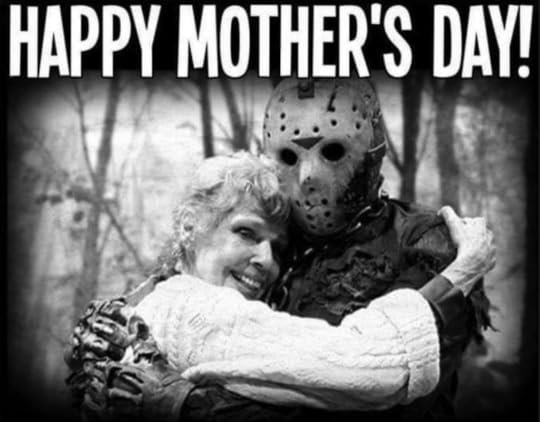
Toxic mother figures can inflict wounds their children carry for a lifetime. If we study the backgrounds of some of the most infamous killers in history, we see a disturbing pattern emerge when it comes to the role of mothers, especially in the early developmental years.
Again, depending on genre, case studies of real-life criminals (from killers to con artists) can be very helpful for crafting a villain with resonance.
Granted, (below) I’ve listed some of the most heinous offenders in modern history (that have documented ‘mommy issues’). Many of these criminals suffer with serious psychological damage. Thus, we are wise to take their ‘stories’ with a grain of salt, since they may or may not be the most reliable of narrators.
Also, some assertions are coming from third-party observers, such as the case with con artist Elizabeth Holmes.
‘Mother’ Issues Create ALL Kinds Elizabeth Holmes
Elizabeth HolmesElizabeth Holmes’ mother has been criticized for relentlessly pushing her daughter to excel, thus possibly laying the groundwork for the Theranos debacle.
‘ mother abandoned her in an abusive household where her grandfather allegedly molested her, and she claimed to have had a sexual relationship with her own brother.
mother rejected her at birth, left her with relatives and strangers and may have suffered from Munchausen Syndrome by Proxy since she frequently gave Mary drugs that made her severely ill.
Ed Kemper‘s mother was controlling and severely verbally, emotionally and physically abusive.
‘s mother, sixteen-year-old Kathleen Maddox, who a serious alcoholic, reputedly once sold him for a pitcher of beer.
‘s mother taught him men were evil and raised him as a girl.
had a toxically close relationship with his mother.
mom was an intense germaphobe.
To reiterate, great writers have historically pilfered from real backstories. There is no need to reinvent the wheel. The wheel works.
Alfred Hitchcock’s famous movie Psycho drew liberal inspiration from serial killer, Ed Gein. Thomas Harris, author of the iconic novel Silence of the Lambs, also used real case studies and cobbled several killers together to create such infamous characters as Hannibal the Cannibal and Buffalo Bill.
Mother, May I?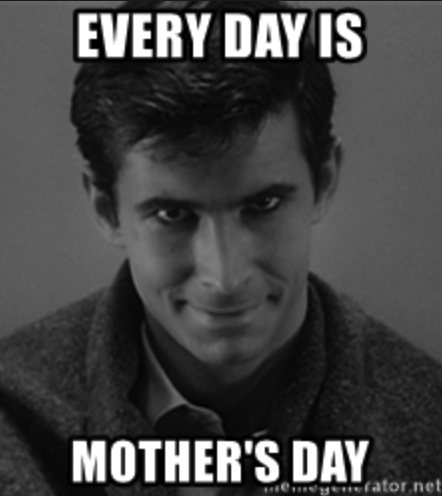
In the end, all of us can thank our mothers for who we are today (for good or bad). The mother relationship is so crucial it has been the beating heart of myth, religion, poems and plays.
Thankfully, not every person with a toxic mother/mother figure grows up to be some deranged criminal. Some grow up to be incredible people who do great things despite their early traumas (Oprah Winfrey).
Conversely, some of society’s most notorious monsters had seemingly normal, loving mothers. Dennis Rader (BTK) is a prime example. From all indications, Rader had normal, loving, albeit imperfect, parents. Unfortunately, no amount of being a good mother can counter severe narcissism, which could have a genetic component.
All this said…
Last time, in my post The Deepest Wounds: Lies, Deception & Betrayal, I mentioned one way to create nerve-shredding story problems—rip away the thing people TRUST THE MOST. Maybe this is with our MC’s background. The mother relationship has damaged or destroyed their ability to trust.
We can also rip away what the audience trusts. No one sees the mother coming.
*coughs* Um…Psycho anyone?
In the End…The world offers so much for writers to weave into story to add depth and texture. Since Father’s Day isn’t coming up, I’m not picking on dads. Moms, dads, siblings, kids, society, culture, religion, background, relatives, workplaces, bullies are all fabulous wells to draw from. Pay attention to LIFE, because that’s what adds the magic to the mundane.
Just remember, well-adjusted people make for boring fiction.
Thoughts? I LOVE hearing from you!Thoughts about how much we can blame mothers for all that ails us? Any questions or comments to add?
I get this is a touchy subject, but not everyone had a mother they’re exactly excited to celebrate. That is simply life…which is what writers work with.
For those who have FABULOUS moms, it might be even more disconcerting to envision growing up with a mother like those listed above.
Any books, movies, experiences, stories?
Other than that, Happy Mother’s Day. I rented Mommie Dearest since, oddly, I had NEVER seen it before…despite knowing the references. Aaaand I wanted to hide in a blanket fort after watching. YIKES!
I love hearing from you, and to show my appreciation…
CONTESTWhat do you WIN? For the month of MAY, for everyone who leaves a comment, I will put your name in a hat. If you comment and link back to my blog on your blog, you get your name in the hat twice.
The Prize?The unvarnished truth from yours truly.��I will pick a winner once a month and it will be a critique of the first 20 pages of your novel, or your query letter, or your synopsis (5 pages or less).
***Will announce April’s winner next post.
MOTHER OF ALL DEALS/CLASSES!The Write Stuff Special: 20 pages for $55Only TEN SLOTS AVAILABLE! Offer ends May 4th, 2020. Sign up HERE.
Small Steps with Classes***All classes come with a FREE recording
Bring on the BINGE: How to Plot & Write a SeriesThursday, May 19, 2022 7-9:30 P.M. NYC Time
For more information, SIGN UP HERE.
The Art of Character: Writing Characters for a SERIESThursday, May 26th 7:00-10:00 P.M. NYC Time
For more information, SIGN UP HERE.
Practice Your Pitch: Master the Log-LineThursday, June 2nd, 7:00-9:00 P.M. NYC Time. This is a TWO-HOUR INTERACTIVE WORKSHOP!
For more information, SIGN UP HERE.
The post Mommie Dearest: The Mother Wound & Fiction appeared first on Kristen Lamb.
April 29, 2022
The Deepest Wounds: Lies, Deception & Betrayal

Lies are a fascinating topic just in general. While most people would openly eschew lying, if we’re honest *bada bump snare* it would be all but impossible to function in society if we always told the truth, the whole truth, and nothing but the truth.
When information doesn’t line up with our experiences, it can be very disconcerting (ergo the image of the clown to make my point). One of the big reasons many people dislike/fear clowns is because they cannot accurately read facial expressions. When the smile is fake and painted on, it can rattle us on a primal level.
Is the clown really happy, or about to murder us?
***I say murder, but that’s me.
Back to lies in general. I touched on this idea a bit in my post about creating dimensional characters, but we’re going to deep-dive it today.
Lying is very useful in fiction. The kissing cousins of the lie—deception and betrayal—can summon some terrible personal demons. Demons so powerful that only the crucible of a strong story problem can exorcise them for good.
I’ve been writing my entire life, and a professional writer for now over 20 years. When people ask what I do, I sometimes jokingly respond, “I lie for a living.” But, in a nutshell, isn’t that what all the best storytellers do?
As humans, sometimes our greatest hopes are in the most beautiful lies. That true love always triumphs, that bad people will always get justice and good will prevail. We know, deep down, that life rarely works this way, but this is why stories are so important.
Lies are Why We Write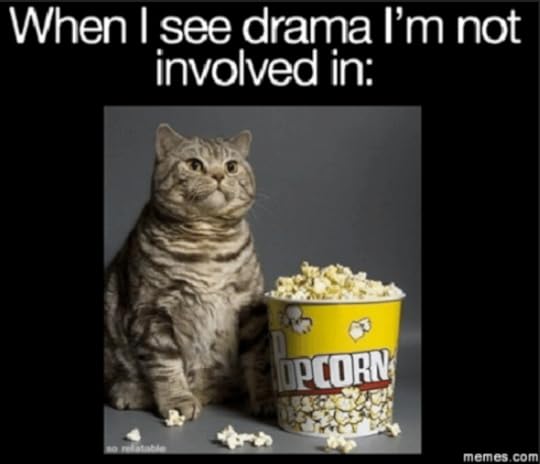
Beautiful untruths keep us hoping, propel us to constantly reach for a better version of ourselves. We cling to ideas that love, justice, mercy, compassion will win the day even when the daily headlines prove us fools.
I love anything true crime. True crime shows, procedurals, movies, documentaries, on and on. Strangely, I watch crime shows to relax at night. I know that’s odd, but hear me out.
Yes, NCIS or CSI or Law and Order all deal with the worst humans have to offer, but, by the end of the 45 minutes or the hour, guess what? Authorities CATCH the villain and I have glorious closure. Hallelujah! There’s at least one place in this chaotic, bonkers crazy world where I know the bad guys lose and good guys win.
The news will tell me how there are zillions of cold cases and unsolved abductions and murders. In life, I’ve seen wonderful people get shafted while truly evil individuals thrived. This seriously messes with my internal compass for justice.
To be able to remain sane in a crazy world? I lean on stories.
This is why I IMPLORE writers to value what we contribute to society. Too many people dismiss what we do. Writing isn’t a ‘real’ job, but then what do they do with most of their free time and money? They binge on what writers dreamed up.
Interesting Truth About Lying
First, I happened to watch an incredible thriller called A Perfect Enemy. It is a slow-boiling story, but once it takes off, just WOW. The main character is a world-renowned architect and he makes a fascinating observation. He states that there are no verbs for telling the truth, regardless of the language.
No one says, “He was honesting to his wife about where he went the previous night.”
This, according to the character, holds across all languages. Humans don’t have verbs for being honest, but we have a slew of verbs for its opposite—deceiving, faking, conning, bamboozling, defrauding, etc.
For the record, I don’t know if this statement is completely accurate. But the character speaks a number of languages and he riffs through several and spouts off the many verbs for lying in at least five different tongues.
She told the truth. The verb is “to tell.” He was being honest. Again, the verb is “to be.” She confessed to her husband. Now, that might be considered a verb for telling the truth, but note it is, more accurately, a verb used to denote someone revealing a LIE.
Honesty is an inherent and assumed condition, which is why it has no verb.
Why is this important?
Because human nature naturally assumes we are being told the truth. If someone takes our money to make us a coffee, we assume they will in fact make us a coffee. If a bottle says it is milk, we drink it without testing first if it is drain cleaner.
Truth, therefore, is the assumed standard. If we meet someone and they give us their name, we assume that really IS their name. We don’t run background checks on everyone we meet to make sure they really are what they say they are.
I listen to an AMAZING forensic psychology podcast, L.A. Not So Confidential, and they do a FABULOUS job of breaking this down on their episode about Catfishing.
Neuroscience literature demonstrates humans are hardwired to trust. In the academic study, Computational substrates of social value in interpersonal collaboration, researchers were able to pin down two specific parts of the brain that activate when we believe we are trusting someone close.
Brain scans showed increased activity in the ventral striatum (key in reward responses and positive emotions) and the medial prefrontal cortex (which helps govern how we perceive the mental states of others). This is also a memory center and the part of the brain we access in making decisions.
Thus, when people are profoundly betrayed, the deception literally rewires the brain. This is why victims of con artists or people dealing with infidelity suffer almost a personal extinction. If they could be SO WRONG about this situation and it was a lie, then what else have they been taking for granted as true?
Lies & the Betrayed Brain
This is why it can take years for someone to overcome a betrayal. If the lie is big enough, it will make the victim question more than just the single offense or offender.
Say, you have an MC who sees her husband at a cafe kissing another woman when he’s supposed to be out of town for a meeting.
The cascade is clear.
Does he love me? Has he ever loved me? Have I always been a fool? How many times have I trusted he really was at work? What else have I missed? Did our mutual friends know? Have they been keeping this from me? Are they all laughing about me behind my back? Was our marriage ever real? He told me he loved me this morning, but did he mean it? How long has he not meant it?
Y’all get the gist.

This crippling self-doubt is powerful in fiction. Lies are story GOLD. It doesn’t even have to be about infidelity.
Think about stories that strip away what we take for granted. The Matrix questions whether our reality is even real. Enemy of the State challenges our notion that our government will always act for the public good. Clickbait demonstrates how much blind trust we have in those we meet on-line to be who and what they say they are. Shutter Island (both book and movie) picked at the trust we place in our memories, our reality and ourselves.
A FABULOUS way to hook a reader is to rip away some form of trust.
***We give it back LATER. We’re not total psychopaths 

Lies, betrayal, and deception are incredibly powerful in life and in fiction. As I mentioned earlier, betrayal very literally alters brain chemistry. This is extremely difficult to overcome, and the psychic scar tissue will always be there. Always.
I don’t care about the saying “Forgive and forget.” That is taken out of context so often I can’t go there.
Even when we forgive, we never forget. In fact, in certain instances, it is foolish and even dangerous to forget.
Ironically, this is why most humans don’t lie. I’d love to say it is because we are good and kind inside, but that is only partially true for some.
By and large, we tell the truth out of self-interest and self-preservation. Because we fundamentally grasp the social fallout that comes with being labeled a liar or untrustworthy, most people generally don’t stray too far from the truth.
***I am talking about big stuff, not social ‘white lies’ like saying you’re tired when a stranger asks if you’re okay. We (hopefully) all know it is inappropriate (and reckless) to ambush a person who’s just being nice with gritty details of our major personal issues.
This aside, lies—the diabolical kind—do real damage that will never be completely undone. We can heal, but we are never the same. A broken arm can mend and work just fine, but an X-ray will always show evidence of the break. We carry that fracture literally to our graves.
Lies & the Unreliable Narrator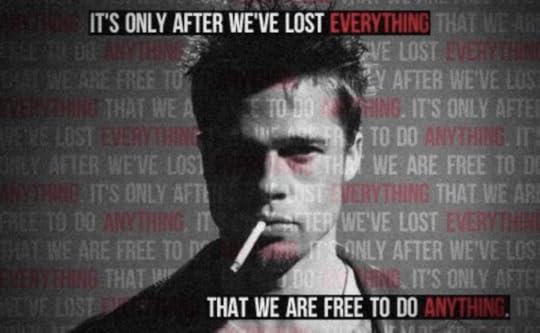
Same with betrayals.
This is why most people, in general, tell the truth. It is also why pathological lying is a symptom of something fundamentally wrong. The person could have a personality disorder, a character disorder, or some other mental health issue. It takes SO much mental energy to lie that we have a word for people who can deceive effortlessly…psychopaths.
One of the reasons the unreliable narrator works so brilliantly is because it takes advantage of our VERY human nature to instantly trust and accept what we’re told. The unreliable narrator can be used for fantastic effects and are excellent for creating plot twists.
Why?
Done well, they are like great liars in life. We never see them coming. If we do, our instinct is to rationalize. Regardless, our first go-to is NOT, “This person is weaving a doozy!”
Summoning Personal Demons Huge thank you to Pexels and El?na Ar?ja.
Huge thank you to Pexels and El?na Ar?ja.Betrayals are FANTASTIC for creating personal demons. Remember, great stories are high concept, meaning they have three main components—universal, emotional, and give the audience something to contribute or take away.
Everyone has been betrayed on some level. Just order a burger. It NEVER looks like the burger in the picture. We all know how it feels to be duped, so we can get very emotional about this topic depending on what we’ve experienced in our past. I promise, audiences definitely have something to contribute or share.
Think about the person who discovers they were adopted. Their parents may have lied for sound reasons, but what is the fallout? How does the character cope?
What if the character thought someone was her friend, only to overhear that friend making fun of her behind her back?
Lies We Tell Ourselves
Facing/discovering a betrayal throws every other relationship and decision into a tailspin. But what about the things we hold to be true about ourselves? We rely a lot on outside interface to validate our beliefs.
We believe we are smart, talented, loved, successful, cherished, trusted, part of the group, etc. But what about when we aren’t?
What if someone believes they’re doing a great job, only to be blindsided by being fired?
I don’t believe I fully appreciated just how talented some actors are until I saw THIS scene in the 2004 remake of Stepford Wives. Nicole Kidman plays Joanna Eberhart, president of a TV Network, who believes she’s at the top of her game anticipating a promotion…only to get canned in a fairly humiliating way.
Kidman’s acting is MIND-BLOWING. You can literally see the Kubler-Ross 5 Stages of Death and Dying in her body language an all in about 90 seconds.
Just this small snippet of film shows what betrayal looks like in high-relief. I don’t know about y’all but I can almost feel (on a VERY visceral level) what she’s experiencing.
Great stories always begin with a degree of denial. In The Stepford Wives there is nothing, per se, fundamentally wrong with Joana Eberhart. It’s simply that EVERY character attribute has a dark side. Great leaders can also be thoughtless tyrants. But, tossed in the right crucible, the tyrant can face her darker nature and recalibrate to being a fantastic leader.
Lies and more lies. What to do…Want a great story? What does your MC fully trust without question? Is there something they believe about themselves? Now, rip whatever that is away.
For the record, it can be a misunderstanding or even patently untrue. A mother whose partner excoriates her as a terrible person, mother and wife initially will have a personal extinction. BUT, the story can reveal that she is NOT the problem, rather she’s in a toxic/abusive relationship.
Author Lianne Moriatry uses this tactic beautifully in Big, Little Lies. Each MC begins with a fundamental belief about her reality until the story forces them to face their darker natures/fears.
Lies Reveal Truth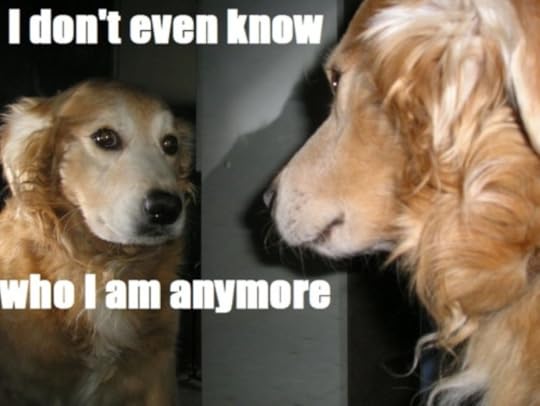
We all lie. But what we are willing to lie about, and how far we are willing to twist the truth, reveals a lot about our character. This goes for real-life people as well as the imaginary people we create.
Anti-heroes probably push this boundary to its limit. It is why they can be difficult to write. Writers must create a person who violates all social contracts but REMAINS likable or at least sympathetic.
Remember I said fiction serves a valuable purpose with the beautiful lie. One of these ‘useful fictions’ is that it is possible to overcome even the deepest betrayal. When we read story with a main character who has every reason NOT to ever trust again, and despite the odds, they manage to HEAL? That is powerful.
Most of the time, in life, it isn’t so neat and clean. This kind of healing can happen but it is certainly not the norm. This is why fiction offers a model for the reader, and hope that if THAT character can overcome THIS, then they can, too.
Thoughts? I LOVE hearing from you!What are your thoughts about lying? Lies serve a purpose in life and in fiction. Can you think of ways a character might be in denial? What are some ‘things’ we trust to be real that could be ripped away? Can you think of some examples of what we take for granted? How might that be used in a story to great effect?
***Btw, for those who want to make a living writing, make sure to scroll down and check out the classes below. When you treat yourself as a business, which you are, then classes are an INVESTMENT. All these classes will help you up the quantity AND quality of your writing.
CONTESTWhat do you WIN? For the month of APRIL, for everyone who leaves a comment, I will put your name in a hat. If you comment and link back to my blog on your blog, you get your name in the hat twice.
What do you win?The unvarnished truth from yours truly. I will pick a winner once a month and it will be a critique of the first 20 pages of your novel, or your query letter, or your synopsis (5 pages or less).
Small Steps to StartThe Write Stuff Special: 20 pages for $55Only TEN SLOTS AVAILABLE! Offer ends May 4th, 2020. Sign up HERE.
Small Steps with Classes***All classes come with a FREE recording
Bring on the BINGE: How to Plot & Write a SeriesThursday, May 19, 2022 7-9:30 P.M. NYC Time
For more information, SIGN UP HERE.
The Art of Character: Writing Characters for a SERIESThursday, May 26th 7:00-10:00 P.M. NYC Time
For more information, SIGN UP HERE.
Practice Your Pitch: Master the Log-LineThursday, June 2nd, 7:00-9:00 P.M. NYC Time. This is a TWO-HOUR INTERACTIVE WORKSHOP!
For more information, SIGN UP HERE.
The post The Deepest Wounds: Lies, Deception & Betrayal appeared first on Kristen Lamb.
April 20, 2022
Small Steps & The Value of Simply SHOWING UP

Small steps are the most essential for achieving anything in life, yet they’re also the most underestimated. They are too easy to overlook or dismiss.
Unlike when we were kids, no one is handing out stickers or scented erasers to reward us for a day well done. There’s no list on the wall showcasing the names of those who put in the extra work and accomplished just…a…little…more than their peers.
So you got up and went to work this morning. Did anyone notice? When you finished reading and replying to those emails, did you get a thrill of electricity? You cleaned your house, kept your kids alive, paid your bills and didn’t run anyone off the road.
What does it matter?
No stickers for “Hey, I Didn’t Go to JAIL Today” or “I Didn’t Tell My Boss Off” or “I Returned my Grocery Cart Even Though Some Idiot Designed the Parking Lot Where the Return Corral was A MILE AWAY”. Okay, the last one might not fit on a sticker.
The others? Someone needs to get on that.
 Tried finding a link but unsuccessful
Tried finding a link but unsuccessful  .
.Who really notices what we do as much as they notice when we FAIL to do the same things? My family might not cheer me on for doing the laundry, but they sure notice when they run out of clean socks.
It feels as if we’re trapped in a world of homeostasis, and the needle never moves. But that is the lie. Big changes are always comprised of small steps. If we overlook small steps, then forget about setting goals, let alone reaching them.
This said, how do we keep going when, 99% of the time, it feels as if we are stuck in neutral?
Small Steps on a Realistic Path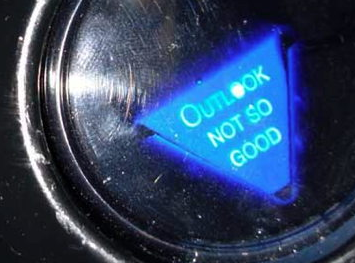
I work very hard to be a positive person, but here’s some news you might like…or not. Whatever.
Perpetual positivity is extremely unhealthy. It’s actually a form of denial.
Sometimes life does suck. The odds CAN actually be against us. We face very real challenges every day. Acknowledging obstacles is what separates dedicated dreamers from hopeful fools.
In business, we run something known as a S.W.O.T. Analysis (Strengths, Weaknesses, Obstacles, Threats). How Debbie Downer of me, right? Um, no. If we seek to achieve anything worthwhile, from cleaning out the sewing room to successfully publishing a book, we need a REALISTIC view of what’s ahead.
Most of you who subscribe to this blog appreciate that bluntness is my superpower. I’m candid because I genuinely care about you and am vested in your success.
Also, I did all the stupid things SO YOU DON’T HAVE TO. Take advantage!
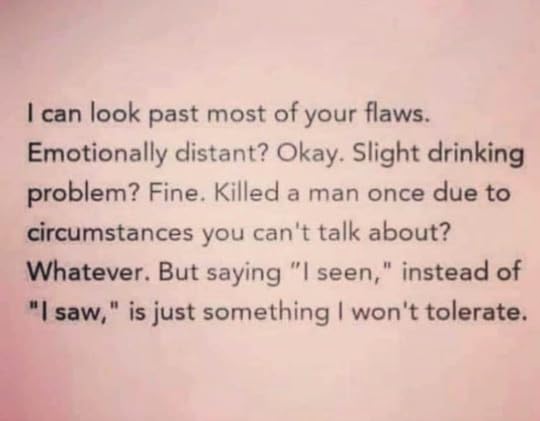 Maybe learn grammar?
Maybe learn grammar?If we’re going to take small steps on a grand adventure toward worthy goals, then it’s a GREAT idea to make sure we are heading the correct direction.
Genius stuff here. I KNOW!
But how many people say they want to be professional authors who sell enough books to write full time, but then they rarely write? They might finish the book but have done NOTHING to build a brand—which is when our name alone has the power to sell books.
Have they studied craft, writing, self-editing, or even the business of their business? Do they have a plan as to how they’ll actually SELL those books?
STOP NOW: Writing is a FOOL’S ERRAND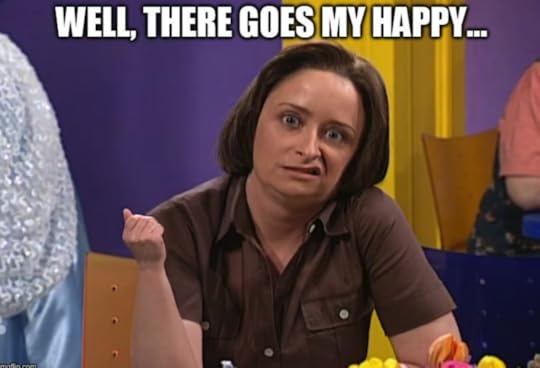
Bear with me.
You want to write novels? Series? Think you have what it takes to be the next J.K. Rowling? Odds are, you don’t. Think you have what it takes to at least make a healthy living writing books? Again, odds unfavorable.
Did you know that, according to Book Expo of America statistics, back in 2004, writers had a 96% failure rate? 96% of all authors published sold fewer than 1,000 books. And, of that number, over 50% sold fewer than 500 books. Most sold around 100.
And this was back before self-publishing and social media. These were largely agented authors with publishers and placement in bookstores.
One would think the numbers are better now, but not according to Forbes. Self-publishing is hardly a way to get rich quick. 20% of authors make ABSOLUTELY NO MONEY, and the median income is around $5,000 a year.
This number is skewed by a VERY small percentage of top earners (those earning $100,000 or more), so likely this median number is lower.
With well over a million books hitting the market, and this number compounding every year, most books will languish in literary limbo until the writer finally just sucks it up and accepts reality.
It was never meant to happen to begin with. Was never in the cards or the stars or the chicken bones…and WOW, I almost lost my “I Didn’t Day Drink” sticker!
Fail to Plan and Plan to Fail
The difference in the successful writer—whatever you define that to be—and the unsuccessful is all in the small steps.
How many of the zillions of writers who ran out to self-publish were still writing like it was 1999? When the ONE goal all writers fixated on was writing A GOOD BOOK?
Being a 21st century author is a LOT more than about writing and finishing a book (in fact, statistically it is all but impossible to make money with A BOOK). If our goal—HONESTLY—is to make a living writing, then there’s a LOT more work ahead.
Even if we decide to outsource certain jobs (I.e. cover design, formatting, internal design) we must get educated. There are too many grifters out there peddling fool’s gold to authors who want shortcuts.
This was why I wrote a Dummies’ Writers’ Guide to SEO recently. Feel free to outsource keywords and web stuff to experts, but have the knowledge to hire and fire wisely.

We are what we consistently DO. Hobbyists dabble and create when the mood strikes. Pros get to work no matter what. It doesn’t matter if you’ve not yet published a book. Ditch the imposter syndrome and suck it up. Writers *shock face* WRITE!
Understand it is OKAY to be a hobbyist. Just don’t expect pro rewards with a hobbyist work ethic. This is why it’s crucial to first define what kind of author you want to be.
If you’re writing solely for pleasure then you don’t need a business plan. But, if you want to replace the day job, then it’s career suicide to approach writing like the hobbyist.
Think about it. If you only showed up to your current day job when you were “in the mood” or “the muse visited”, how long would you remain employed?
There are GOOD reasons why this profession isn’t for everyone.
So, when we begin this ‘journey’ are we even pointing in the correct DIRECTION? Hobbyist or professional? That is a huge deal!
If I’m in Texas and my GOAL is to walk to California, then I really should check I am—at the very least—pointing WEST.
Granted I CAN, theoretically, reach California from Texas heading EAST, but what are the odds I’ll give up trying to circumnavigate the entire planet? Small steps are HUGE when I am walking a couple thousand miles down interstate highways, but it is DOABLE. At 15 miles a day, I can reach California in about 4.5 months.
The other direction? Fuggetaboutit.
Same with being a professional author. Yes, the odds are against us. But how much of that ‘bad luck’ do we have the power to change?
Small Steps & Brutal Honesty
What are ALL the obstacles standing in your way? List them and add to the list as you go along. Yes…as you go along. As you gain higher levels of expertise you’ll trade old problems for (hopefully) better problems.
This isn’t me being a Negative Nelly. It’s recognizing that, if I see a mountain range on the map in between where I am and where I want to go, it’s smart to look for the path through the mountains before I get there.
No amount of positive thinking is going to make those mountains vanish.
If I skip along to the metaphorical Alps with no plan, I will still be required to make a plan. Either I’ll have to plan a retreat or I’ll plan to find a path…and waste a ton of time and resources searching for a route I could have easily accounted for in the beginning.
Also, if I want to take on a trek of this magnitude, I need to account for internal obstacles. Self-doubt, burnout, stress, isolation, etc.
Same with writing. The author mountain range might be invisibility. How do we PLAN on standing apart from millions of other books? If we have a plan ahead of time, this prepares us mentally as well.
When we don’t immediately make a gazillion dollars, we keep on the paths that have the best reputation for delivering authors through that massive obstacle (I.e. multiple books, a series, a good blog, a strong social media following, etc.). Small steps. One foot in front of the other.
Trust in the process and that compounded efforts are like compound interest. Hard to see anything notable in the short-term, but then one day, BAMMO! The world sees an ‘overnight success.’
Small Steps Around Big Obstacles
I understand that life gets in the way. But I also appreciate the power of even small snippets of focused time. It’s why I’ve PAID for a Ning called W.A.N.A.Tribe for TWELVE YEARS.
(W.A.N.A. stands for We are not alone.)
Since I pay for this out of my own pocket, there are no ads or bots. We’ve been meeting every day, every week to do writing sprints for almost EIGHT YEARS. It is a virtual office space where one of us sets a timer for an hour, people join in the sprint (in the CHAT forum), and at the end, we relay what we accomplished.
Then, we chit chat a few minutes and do the next sprint and the next and the next. I’ve, personally, finished nine books, a novella and hundreds of articles using the sprints.
Some of us stay most of the day or even all day. I mix up sprints where I write with sprints where I clean, cook, and homeschool my 12-year-old son. It’s an amazing place for accountability. We have permission to leave the laundry, the dishes, the bills, the pets and kids for AT LEAST ONE HOUR…to write.
Here’s the weird thing, though. Out of almost 3300 members, any guess how many regularly show up for sprints?
Maybe 20, if I’m being generous.
But, want to know a fun fact about those who show up consistently? Almost all of them are highly successful multi-published authors.
Telling, isn’t it?
These writers all have lives. They have families, children, health issues, ailing parents or family members. We all have our share of crises, but guess what? We aren’t any better, any more talented. The only difference is we consistently show up.
Life Size is Bite-Size with Small Steps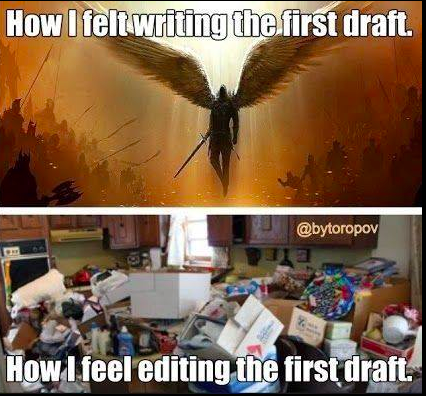
I don’t mention the lackluster attendance on W.A.N.A.Tribe to make anyone feel badly. But think about pre-Internet. How many authors had a free and designated workspace with peers around almost every day to encourage and offer help when needed? Think how many authors dreamed of such a place.
Heck, I did, which was why I built it.
Trust me! I wish I ONLY had to worry my pretty little head about writing. Today, while working on this post, I have done the dishes, sorted, washed and folded laundry, cleaned the kitchen, cooked, cleaned the kitchen AGAIN and organized my vitamin cabinet.
Why?
Because LIFE is Messy & BIG
And needs to be broken into manageable bits. I can write about 500-800 words in a sprint, but then I need to move around unless I want back pain. Also, those dishes—sadly—aren’t going to wash themselves.
The vitamins are sorted and the ones that tried to bite me? I tossed. Then I did a quick guided meditation on my phone. NOW, I am back doing a sprint WRITING.
I use lists and timers for everything I do, all the small steps. It keeps me focused and on task and I accomplish a lot more (especially when there are others to hold me to task). But even if we reduced W.A.N.A.Tribe down to ONE sprint five days a week for six months SOLELY dedicated to writing..
How much could one get written?
What habits might one form? Is it reasonable to assume with just these small steps—logging in, writing for an hour a day, day after day—that it would be easier to self-identify as a professional author instead of a dabbler who maybe one day will get around to being amazing?
Obviously, I’d love everyone to use W.A.N.A. Tribe. The more the weirder! Does it matter if only 12 people continue using it? No. I don’t make any money off it. It’s really just a virtual office for those who choose to make writing a priority.
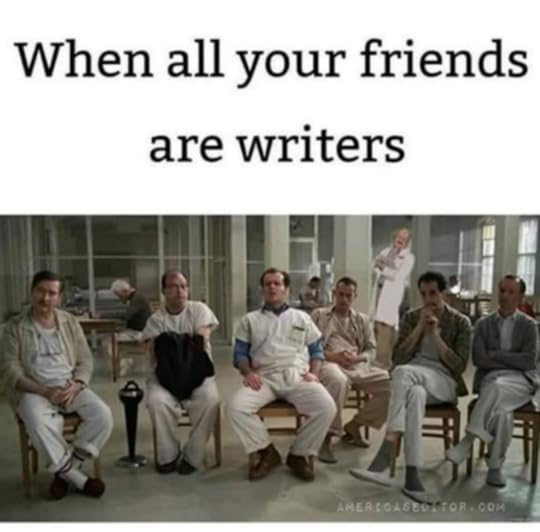
I certainly do not pretend to have my act together. In fact, I can only look at watercolor paintings if I’m on Instagram lest I give up all hope.
Anything worth achieving isn’t going to be easy, but we can improve our odds of success by simply being honest about our obstacles as well as what we want…then breaking all this down to bite-sized pieces.
Every massive success (or failure) is made up of small steps. In fact, I could make a case that it is impossible to trace the beginning of…anything. Couples don’t ONE DAY end up in a nasty divorce. That nasty divorce is comprised of many small steps taken or not taken. Then, we could go back before they married to their childhoods, their genetic predispositions, then farther and farther and father back.
The same can be said for success.
This is why it is key to simply DECIDE and START. Commit to showing up, whether that is as a writer, a partner, a parent, a whatever. When it comes to writing, you are not alone. Your chances of forming new habits and reaching goals vastly improves with a support network.
Feel free to use the Chat over at W.A.N.A. Tribe, or join a writing group, start your own. Just DO IT. Small steps are DOABLE as in TODAY, RIGHT NOW. They are simple to repeat. Just small steps day after day, month after month will take you thousands of miles from where you began.
Looking forward to seeing where y’all go! Btw, if you sign up for W.A.N.A. Tribe, I have to manually approve you. I try to be as instant as possible, but this is what keeps the bots away.
Thoughts? I LOVE hearing from you!Do you REALLY think of yourself as a writer? An author? Are you guilty of dabbling when you really need to set a schedule?
For the record, I have had times I HAD to take off and resort to being more of a hobbyist. Burnout is a real thing. Rest is crucial. This said, how can we do better at making what time we have extra fruitful? How do you get the most out of your minutes?
***Btw, for those who want to make a living writing, make sure to scroll down and check out the classes below. When you treat yourself as a business, which you are, then classes are an INVESTMENT. All these classes will help you up the quantity AND quality of your writing.
I love hearing from you!What do you WIN? For the month of APRIL, for everyone who leaves a comment, I will put your name in a hat. If you comment and link back to my blog on your blog, you get your name in the hat twice.
What do you win?The unvarnished truth from yours truly.��I will pick a winner once a month and it will be a critique of the first 20 pages of your novel, or your query letter, or your synopsis (5 pages or less).
Small Steps to StartThe Write Stuff Special: 20 pages for $55Only TEN SLOTS AVAILABLE! Offer ends May 4th, 2020. Sign up HERE.
Small Steps with Classes***All classes come with a FREE recording
Bring on the BINGE: How to Plot & Write a SeriesThursday, May 19, 2022 7-9:30 P.M. NYC Time
For more information, SIGN UP HERE.
The Art of Character: Writing Characters for a SERIESThursday, May 26th 7:00-10:00 P.M. NYC Time
For more information, SIGN UP HERE.
Practice Your Pitch: Master the Log-LineThursday, June 2nd, 7:00-9:00 P.M. NYC Time. This is a TWO-HOUR INTERACTIVE WORKSHOP!
For more information, SIGN UP HERE.
The post Small Steps & The Value of Simply SHOWING UP appeared first on Kristen Lamb.
April 14, 2022
Fiction Filler: Bloated Writing Makes Readers Sick

Fiction filler is like fillers in food. It makes a little bit of good stuff go a lot farther, but at what cost? How much of this pink slime prose can we really get away with before readers feel ill?
Almost everyone has padded some form of writing—a school paper, essays, presentations, resumes, etc. In college, I used to write in the passive voice because, over the span of a research paper, I could squeeze in at least 30-40 extra words.
The Indonesian government was taken over by a CIA coup (passive voice).
A CIA coup took over the Indonesian government (active voice).
Add in a bunch of extra modifiers? Easy peasy!
A nefarious CIA coup secretly took over the legitimately elected democratic government of Indonesia, much to the population’s deeply profound dismay.
WINNER! …or not.
Trust me, when you’re barely squeezing over that 20-page limit? Every bit helps. And, if a little filler goes a long way, then a LOT of filler should go much farther straight into the trash.
With non-fiction, it’s often expected that authors will pad the work but even then? Don’t get crazy.
Why Use Non-Fiction Filler?
Non-fiction filler is so common, most people don’t notice it. For instance, testimonials are a common way to pad the word count. If you read most diet books, the authors will almost always include personal stories how X eating plan changed lives among those in their target audience.
These filler sections teach nothing directly about the diet, workout plan, budget guide, or ways to start a small business, but they do add credibility to the experts and their books.
If I write a non-fiction about how to lose a hundred pounds or more, then it’s a GREAT idea to have testimonials showing I might actually know what I’m talking about. Testimonials demonstrate, via anecdotal evidence, that my methods not only work, but that my results can and have been duplicated by others.
Think about infomercials.How much of the infomercial is about the actual item versus people using the product or telling how X gizmo did something amazing?
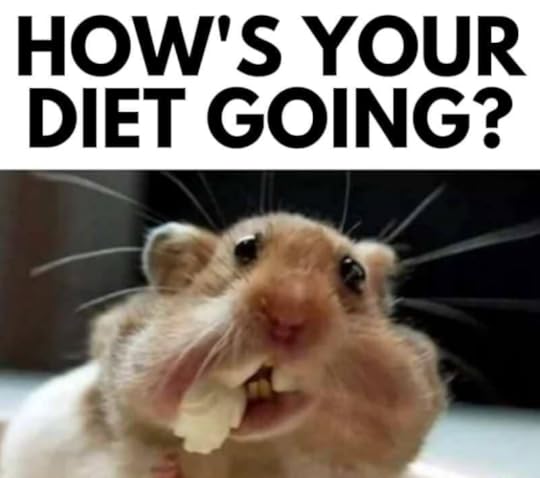
Other non-fiction filler might be exercises, examples, or addendums (I.e. sample budgets, diet plans, meal plans, goal sheets, etc).
Non-fiction filler serves another, and fairly obvious, purpose. It can make the work long enough to justify people buying the physical BOOK (hopefully in hardback). For those who are pre-published and might not know, we need to reach a certain word count for a printed work.
If our work is too short, we don’t have a book, we have a pamphlet. We need to have enough content to make a decent book spine that is wide enough to showcase the title and our name.
While some people are happy to sell only in digital form, NF authors like to be able to sell ‘the book at the back of the room.’ NF authors also need a print book in order to negotiate placement with retailers (I.e. airport newsstands, Costco, Target, Walmart).
What about Fiction Filler?
Writers will pad a work of fiction because—DUH—they also want/need it to be longer. Perhaps the story isn’t quite robust enough to be a full-length novel. If I want a book to hold in hand, it needs to be a certain word count…so I add a little extra.
No problem, so long as I don’t get crazy.
Or, say if I want to list my book on Kindle Unlimited, I know I’m paid more for a longer book (KU pays per page read). Thus, there is a temptation to add in extra words so I can, theoretically, make more money.
To a degree, this can work. Yet, there is a certain threshold we reach where it just becomes bad writing. It won’t matter HOW much KU pays per page if readers want to throw their Kindles across the room twenty pages in. It will be MUCH harder to encourage future readers if most of our reviewers are wielding digital torches and pitchforks.
 Ouch.
Ouch.***I cover some of how to remove the major offenders here in my post, Editing for Authors: 7 Ways to Tighten the Story and Cut Costs.
All this said, I LOVE description. For me, there is nothing better than a novel with prose so rich and yummy I want to dog-ear, highlight and pillage for my collection of shinies. THIS, however, is a stylistic choice, and has nothing to do with skill level.
Lush prose (AWESOME) doesn’t automatically qualify as purple prose (NOT AWESOME).
This brings us to our first fiction filler offender.
Purple Prose to Plump the Plot
Purple prose is the literary equivalent of cotton candy. Lost of sugar spun with even more air. A little is fine but too much will make us sick.
Purple prose is defined as:
…overly ornate text that may disrupt a narrative flow by drawing undesirable attention to its own extravagant style of writing, thereby diminishing the appreciation of the prose overall.
Wikipedia
Have you ever read a work that rambled on so long with the description that, eventually, you forgot the point of the story? While purple prose certainly can pad the word count, it’s also a quick way to frustrate readers. Anything that disrupts the story, and thus interrupts the fictive dream, is bad.
For example, if I spend so long describing a magical forest that the reader has to go back to figure out why the MC is even in the woods? This, over time, gets annoying.
There really is no strict rule for what constitutes purple prose. Readers who love Hemingway-esque austerity are prone to think any description is too much description. Much of this is subjective.
So how can we ‘tell’?
One trick is to read your work aloud.Record it on your phone and play it back. How does it sound? Are there places where you stumble reading it aloud? If the prose trips the tongue, odds are it will trip up the brain and the reader.
Read samples aloud to friends or a critique group. Though we can’t please everyone, if we get more than three people saying they were lost or confused? That’s a good hint we need to refine our work.
Nix redundant adverbs. That is just lazy/amateur writing. If your character yells loudly…um, how else are they supposed to yell? Adverbs can be powerful, but they can also be overused to prop up weak writing.
Check out Six Easy Tips for Self-Editing Your Fiction.
Just appreciate that sometimes, less is more, even in description.
Fiction Filler & Too Dumb to Live
I have Kindle Unlimited because I read and listen to an INSANE number of books. My KU membership gives me access to audio books that I can ‘read’ without using one of my credits.
***This is a fabulous way to attract new fans, most especially if you have a series.
Like I mentioned in my last post, Literary Larceny & Why People Should Be Ashamed, if I discover a new author on Audible, I will donate blood to finish their series/read everything they have available.
While I have scads of favorites, not every novel can be a winner. The last book I tried to listen to is largely what inspired this post. To be fair to the author, the concept was excellent and the story started off strong. Plenty of people enjoyed it.
But, in my POV, the author used SO much filler that they split their audience between those who loved it and those who wanted to set the work on fire, then salt the earth beneath it.
If we pad the run time, we risk making the characters—the MC in particular—come across as too dumb to live.In this book, the MC had one annoying habit that finally rendered the story unreadable.
She questioned everything to the point of distraction. If she was going out for groceries, we (the readers) were subjected to paragraph after paragraph of annoying indecision.
(My parody to give the gist…)
I was supposed to make dinner, but I hadn’t been feeling well. Since I’d been sick for the past week, the fridge was almost empty. Was I really ready to get out of the house? I wasn’t sure.
What if I saw someone I knew? Worse still, what if someone from my husband’s office saw me? Would word get back to him? I didn’t know if I could take any more of his lectures how I was letting myself go.
Was I really letting myself go? I HAD been sick. Really sick. That should have been enough to not look my best. Wasn’t it? Or was I just making bad excuses?
Maybe I could try harder. I could wear my new sundress. No, too casual. What about my pants suit from the other day? That was nice enough, right? And only buy a rotisserie chicken. That wouldn’t take too long…
FOR DUCK SAKES, MAKE A DECISION!Though I am being silly here to protect the guilty innocent, my example isn’t too far off from the painful waffling on almost every page of the novel. The MC fretted over every little thing on almost every page, with every…single…decision.
Apparently, I wasn’t the only one irritated to the point of distraction.
 That’s gonna leave a mark.Word/Phrase Echoes as Fiction Filler
That’s gonna leave a mark.Word/Phrase Echoes as Fiction FillerFor anyone who’s ever completed an entire book, CONGRATULATIONS! For those who haven’t? I am warning you ahead of time that you WILL have a favorite word or turn of phrase that you’ll use WAY more than you intended.
It happens.
This is why good editors/beta readers are invaluable.
How do you know if you’ve used a word/phrase too many times? Ask two key questions here:
If you turned every time the audience read a certain word/phrase in your MS into a drinking game, would readers die from alcohol poisoning?If you answered ‘YES’ to Question 1, then how QUICKLY would the reader die?
Many of these turns of phrase are common just in general. I’ve used the notion of a smile that doesn’t reach the eyes. This is used to convey to opposite of the Duchenne Smile, which is a smile of authentic happiness/enthusiasm.
Someone can be smiling at you, but deep down you sense they’d stab you if it were legal. Thus, their “smile doesn’t reach their eyes.”
Got it.
Nothing wrong with using this once, twice, maybe more. But, when we readers start noticing it to the point of distraction? That is a big problem.
This author was also a fan of ice in physiological descriptions. The MC’s blood turned to ice, her spine turned to ice, her stomach chilled to ice, ice flowed through her chest, her nerves froze to ice….
OKAY I GET IT! THIS BOOK HAS MORE ICE THAN THE POLAR CAPS!
Repetitive Actions/Scenes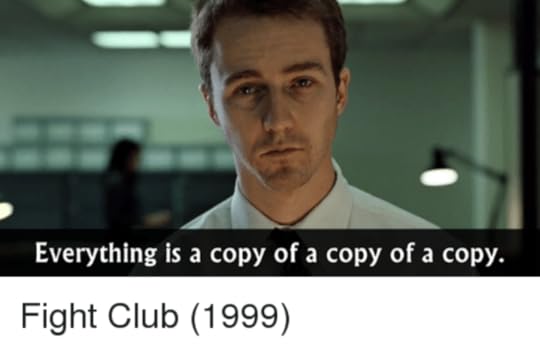
One of the main reasons I’m a stickler about tight writing is because clean prose makes it much easier to see if our characters or plot are weak (then strengthen accordingly).
Sadly, what a lot of authors (new authors) do is, instead of fixing the core problems, they use giant globs of Literary Bond-O to hold their story together. How do we spot Literary Bond-O? Repetition.
The MC in this book was constantly drinking, falling or spilling something. I also lost count how many scenes the character was having wine. Which, hey I like wine but there are other background actions a character can be doing aside from refilling her drink.
Get CreativeIn one scene, the MC refilled her glass so many times, she went through almost two bottles easily (4 glasses to a bottle). By the time the author got to the end of the scene? The MC should have been wasted.
Lord knows I wished I were…
Not to mention I paid more attention to counting refills than to the plot. No bueno.
I get it. The author was trying to show the MC was nervous. Fine. She’s in a kitchen. Refill the wine, reorganize the cutlery, refold the bar towels. There are a lot of other ‘busy’ activities that can show a character is nervous. Think beyond that ONE thing.
Change it UP! Everybody drink!
Everybody drink!The MC also kept startling, which is fine. But, again, she kept startling in the same exact way. I lost track how much stuff she dropped/broke/spilled.
Humans react all along a spectrum. Over at Writers Helping Writers, Angela Ackerman and Becca Puglisi have all KINDS of resources to help us add depth and dimension to our stories. These ladies are the authors of The Emotion Thesaurus, which is a MUST-HAVE in every author’s reference library.
There is more than one way to show every emotion or reaction. True, our heart races when stressed, but we can also get dizzy, have sweaty palms, ringing in the ears, etc. Vary up the physiology.
Yes, we can spill things when startled. Spilling something—coffee, wine, tea, contents of purse—every ten pages?
Everybody DRINK!
How to Fix the Filler
Again, beta readers and a good editor can help. Then there are also common offenders when it comes to repetitive words (look, looked, looking, turn, like, etc.).
If you suspect you might be using the same descriptors, use Word FIND and highlight every time a certain word pops up in the MS. For instance, if I keep using ice (ice in her heart, ice through her veins, Ice, Ice, Baby…) do a Word FIND for ‘ice’ and either highlight it or FIND/REPLACE in all caps with ICE. This will help you SEE just how many times you might be reusing the same word.
***Just expect to also see ‘sushi and rICE’, because Word FIND CHANGE/REPLACE won’t discriminate between ‘ice’ the word and ‘ice’ as part of a word.
Also, search for synonyms while you’re at it (cold, chill, frozen).
Once you’ve found all the offenders and fixed accordingly, then just use Word FIND Change/Replace to revert it back.
In the end, relax. First, give yourself permission to be new. Then, realize even the best writers do it. There is no such thing as the perfect book. As I mentioned with ‘purple prose’…
Some of this ‘filler’ is going to be subjective.We still need to do the best we can. The more distractions we can remove from our story, the better the odds readers will not only finish our books, but they’ll read everything we have AND recommend us.
While we can’t please everyone, I do hope this post helps y’all trim any fat and get rid of any fiction fluff. Bye, bye, book bloat!
What Are Your Thoughts?Have you tried to read or listen to a book and couldn’t get past all the empty fillers? Are there some other types of fictional fluff you would add to the list? Does fiction filler not bother you? Do you have a certain threshold you can take and then it’s OVER?
I love hearing from you!
What do you WIN? For the month of APRIL, for everyone who leaves a comment, I will put your name in a hat. If you comment and link back to my blog on your blog, you get your name in the hat twice.
What do you win?The unvarnished truth from yours truly. I will pick a winner once a month and it will be a critique of the first 20 pages of your novel, or your query letter, or your synopsis (5 pages or less).
The post Fiction Filler: Bloated Writing Makes Readers Sick appeared first on Kristen Lamb.



